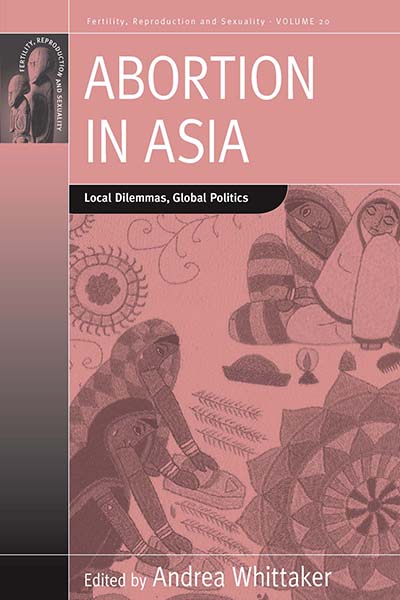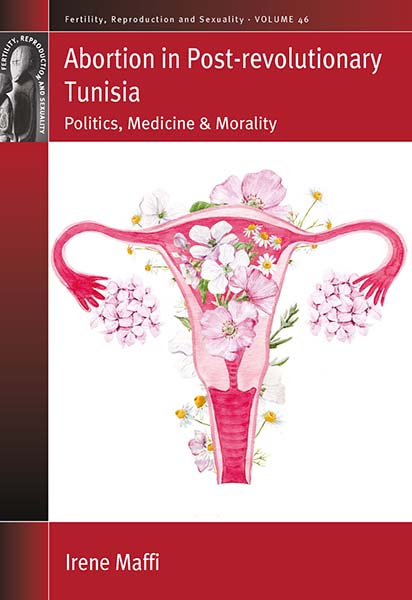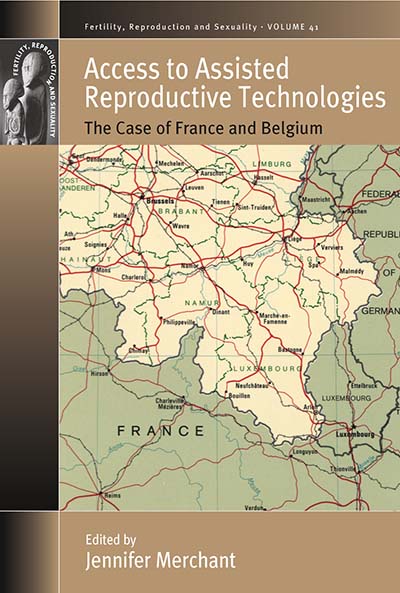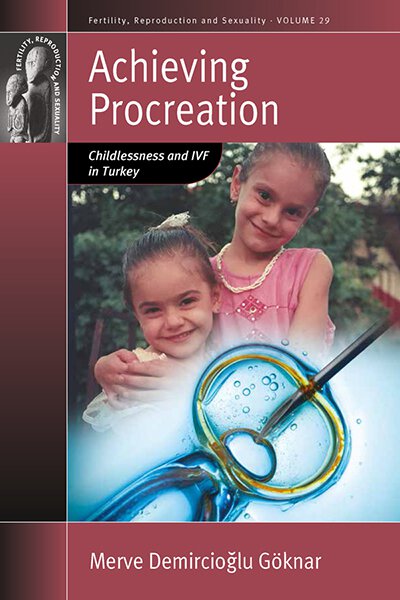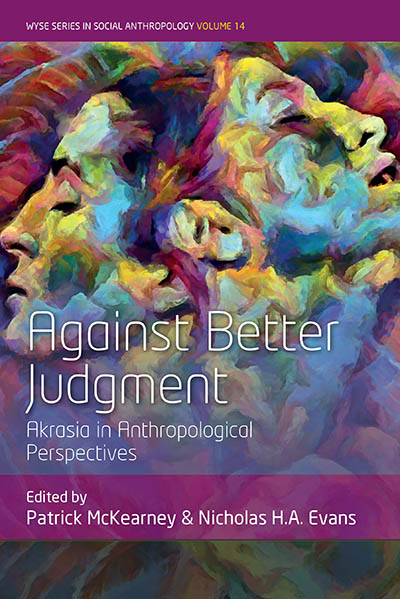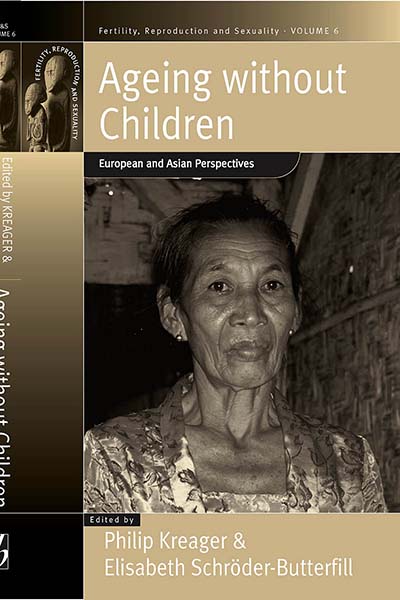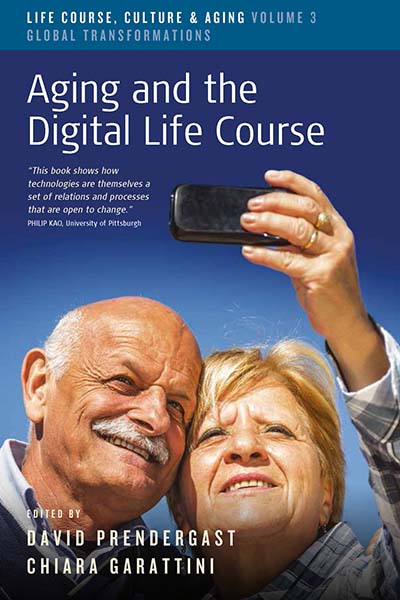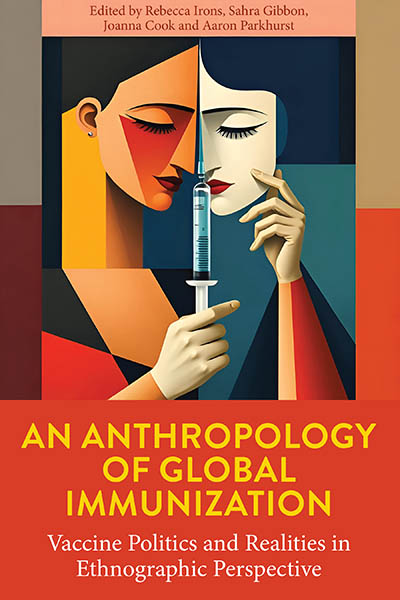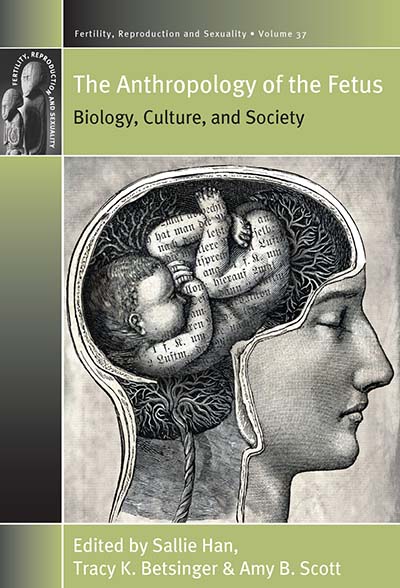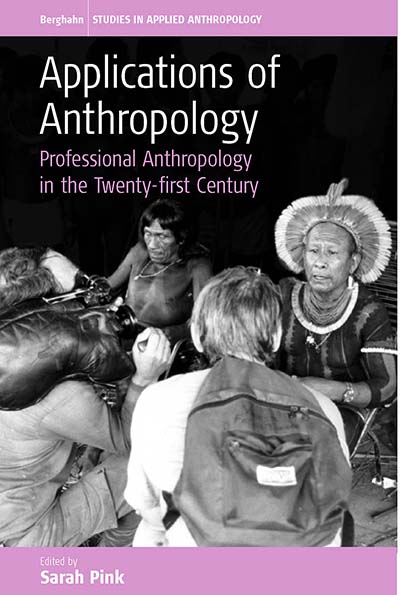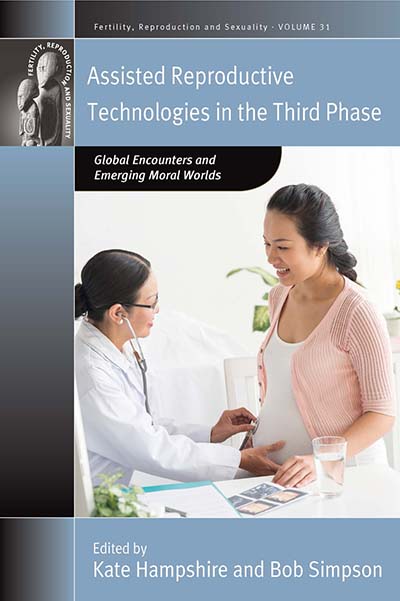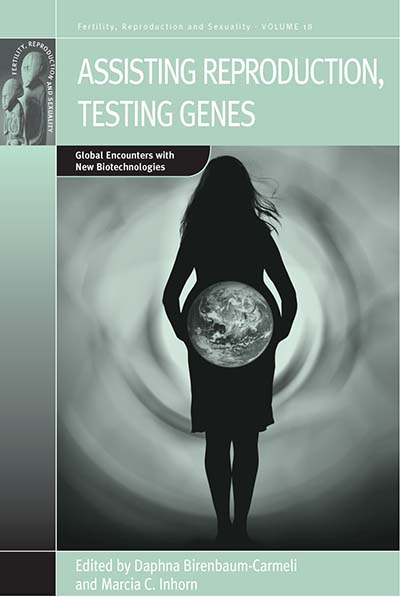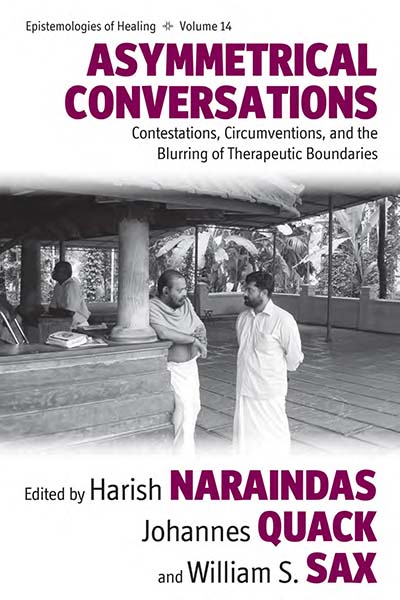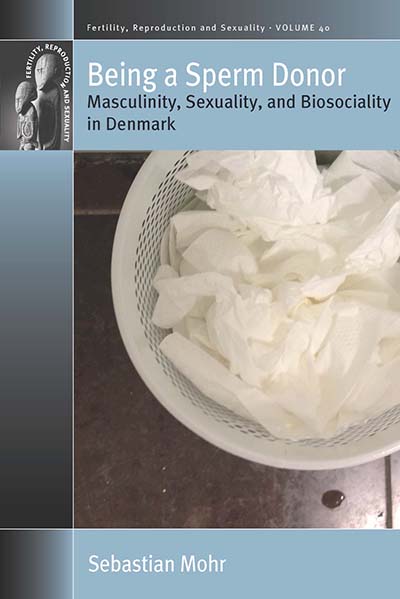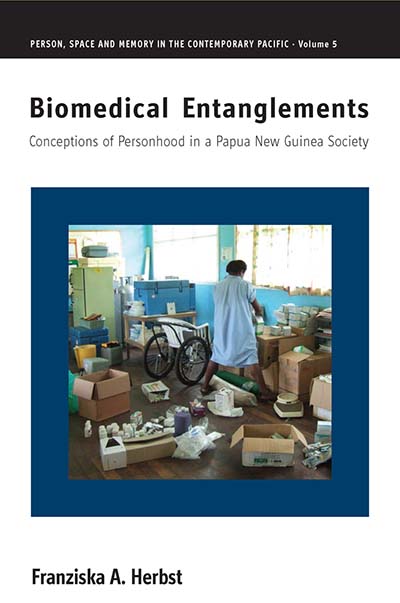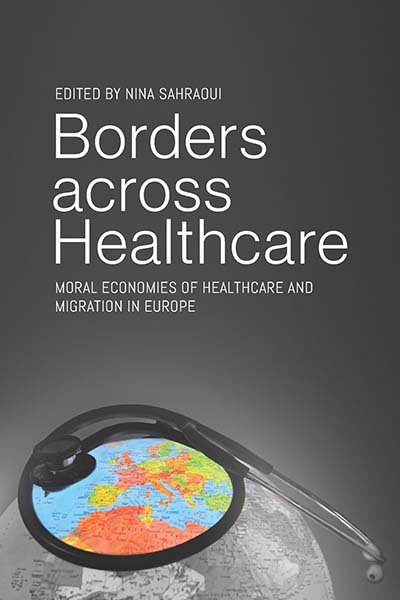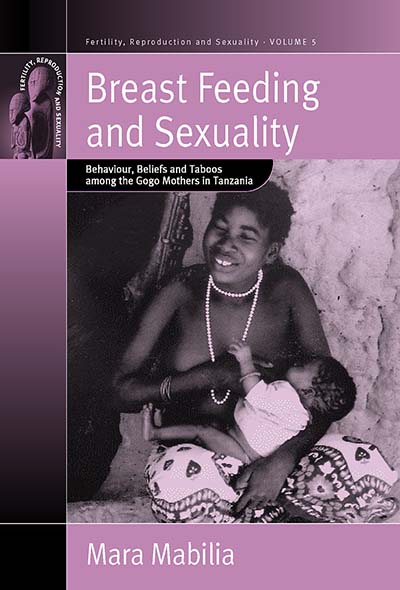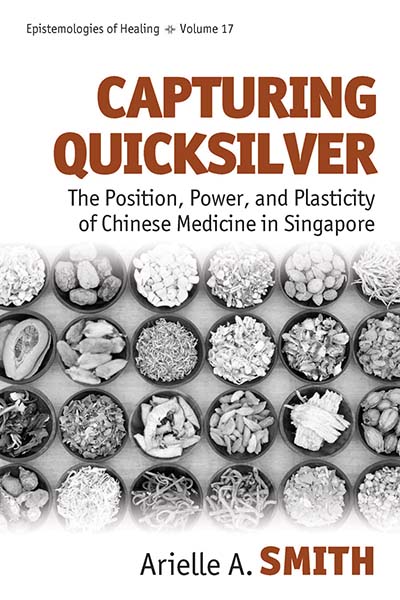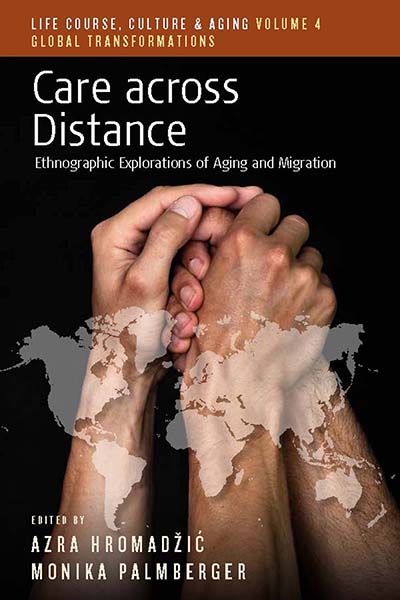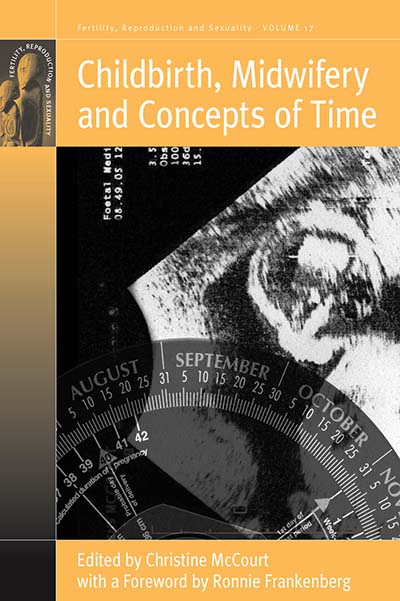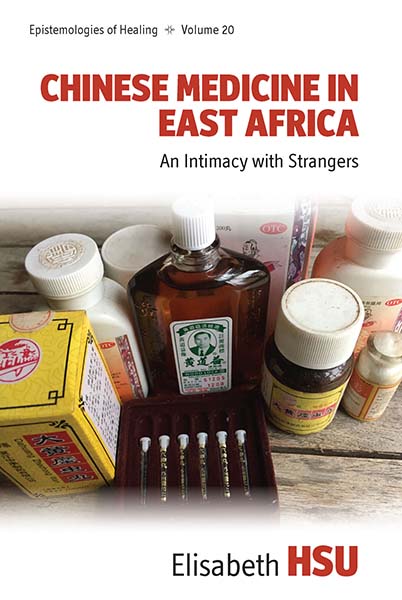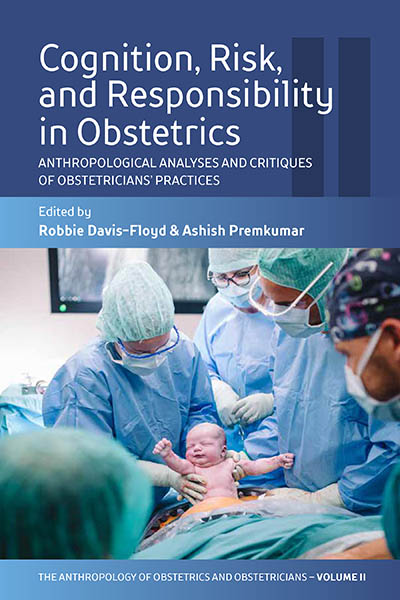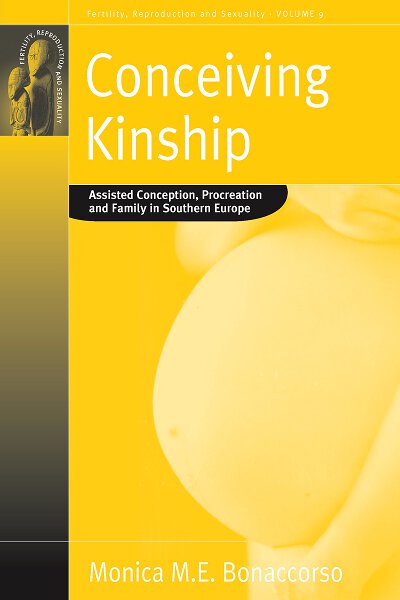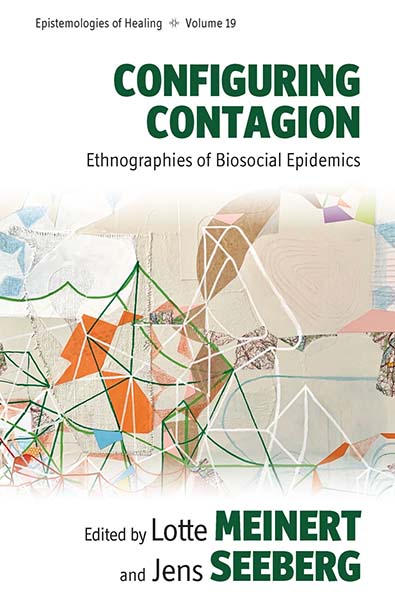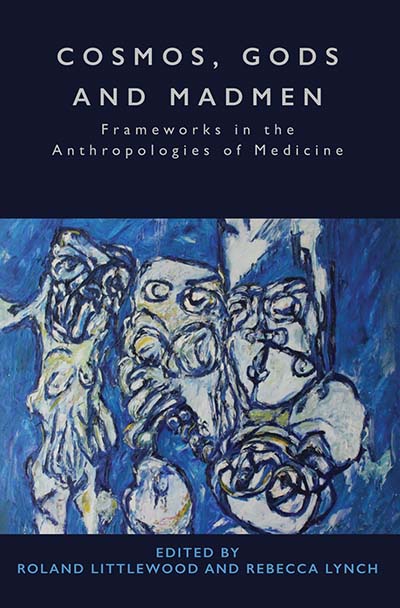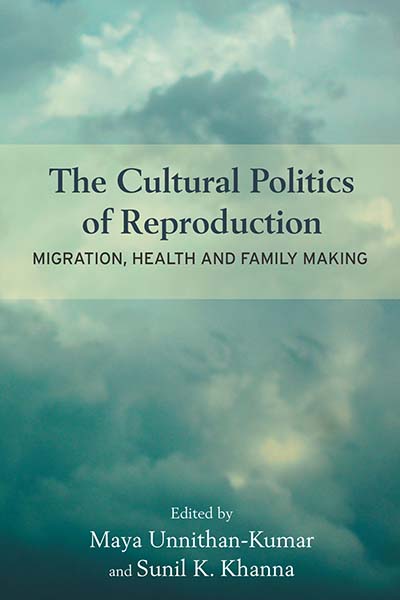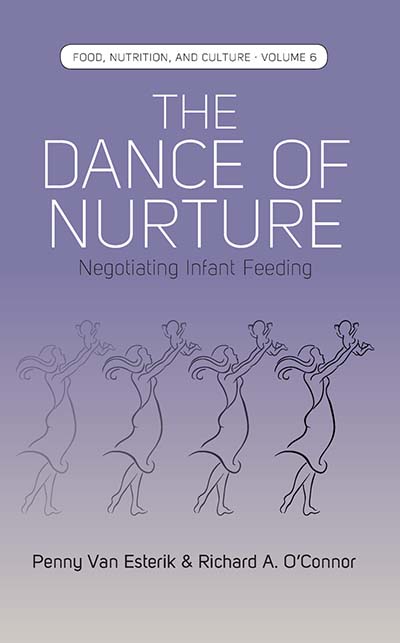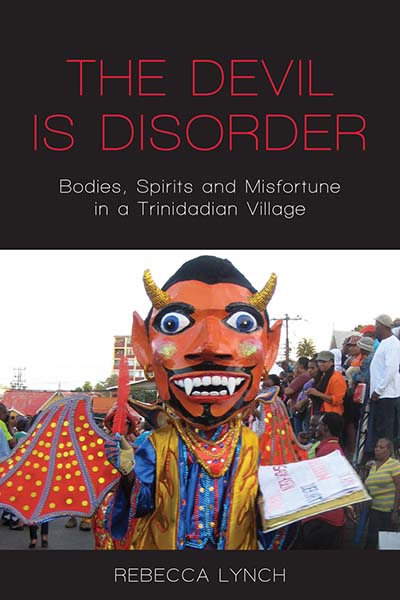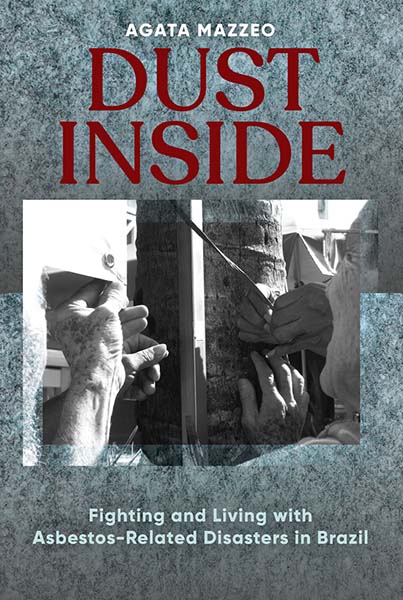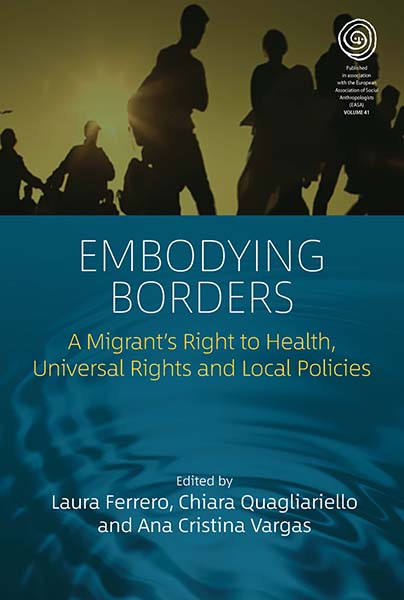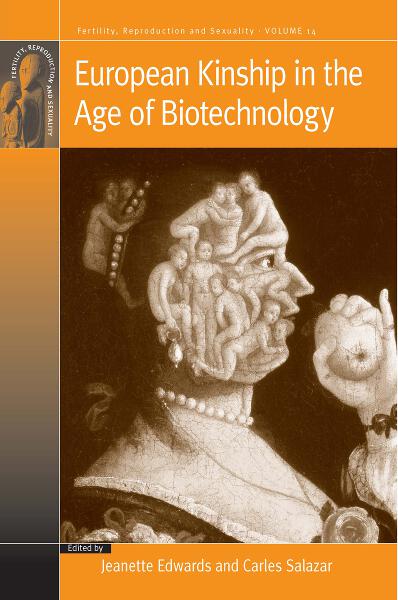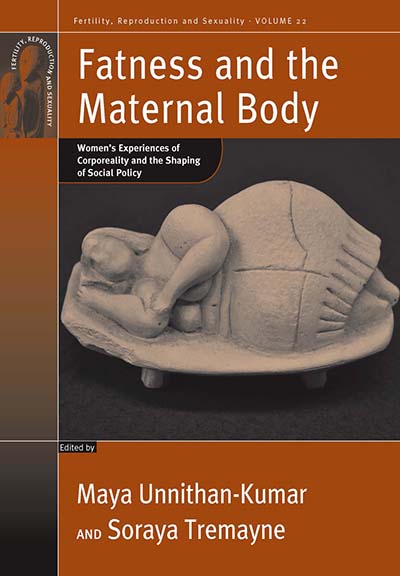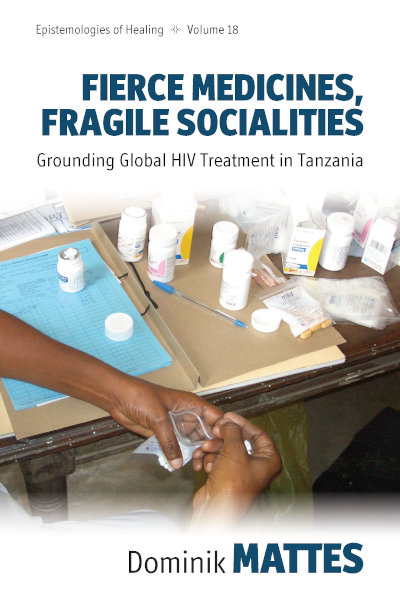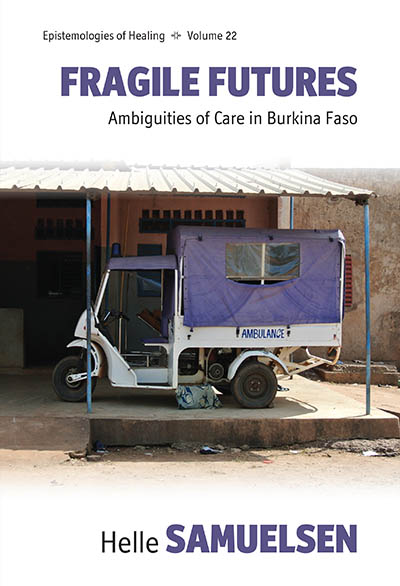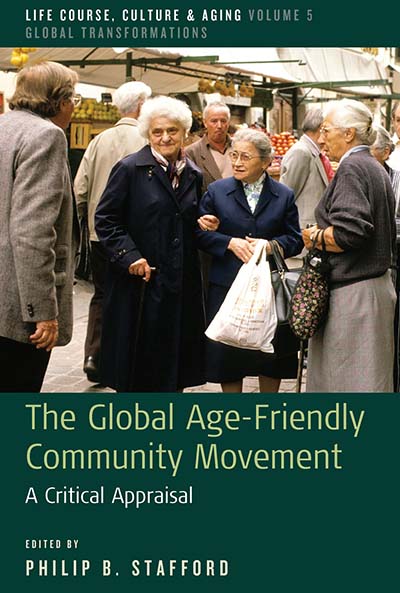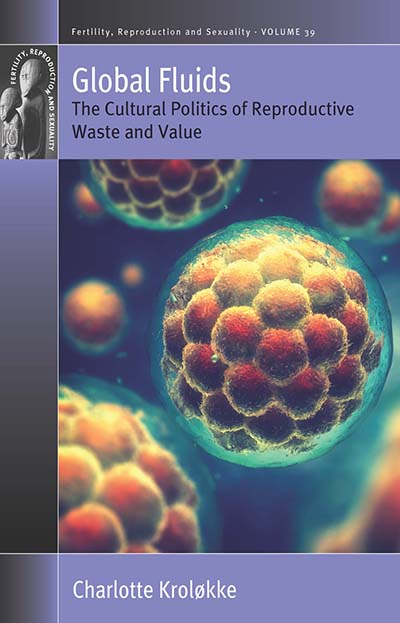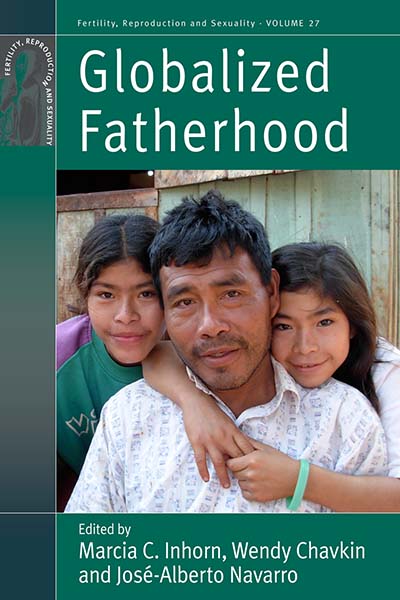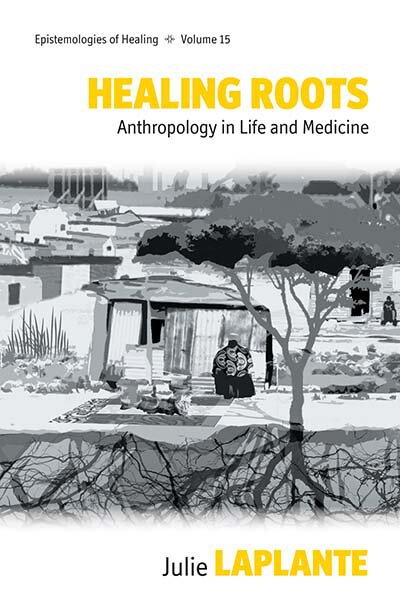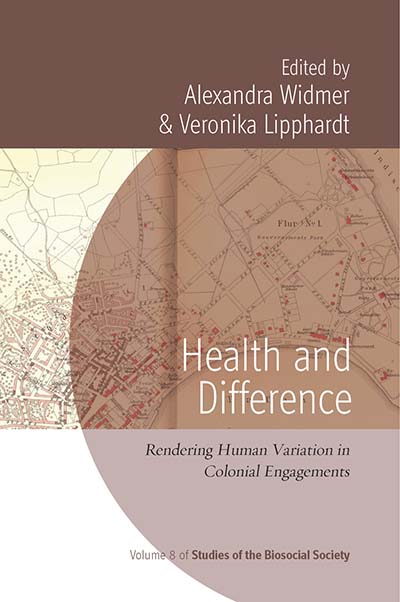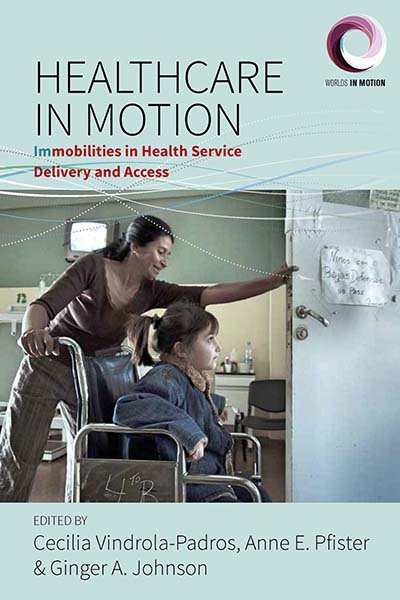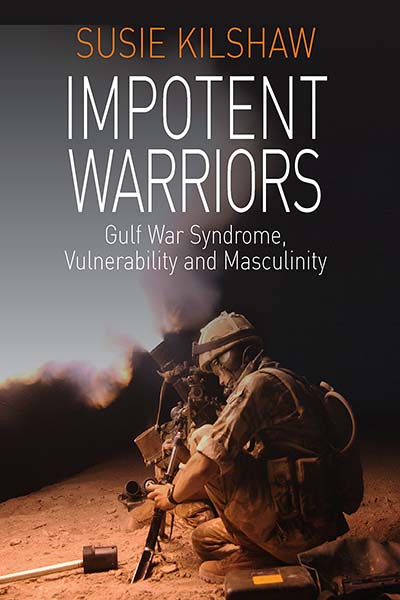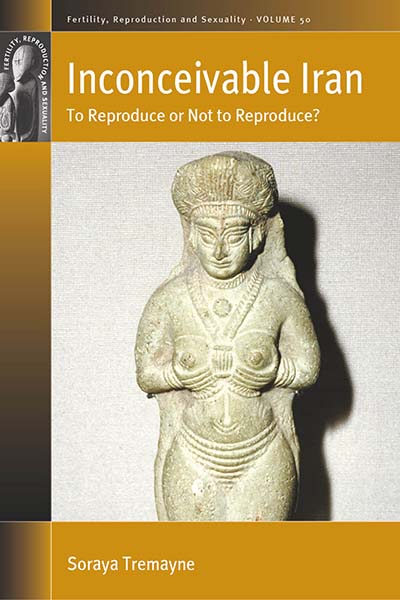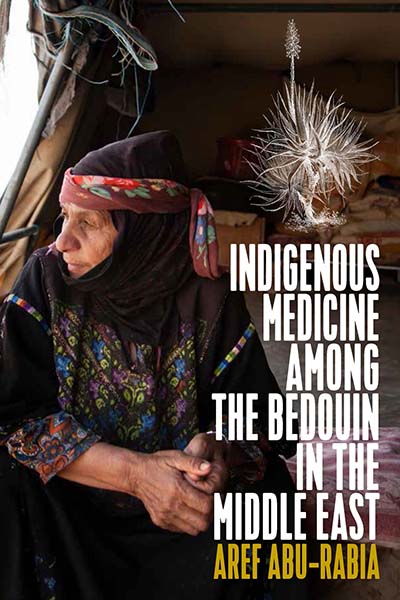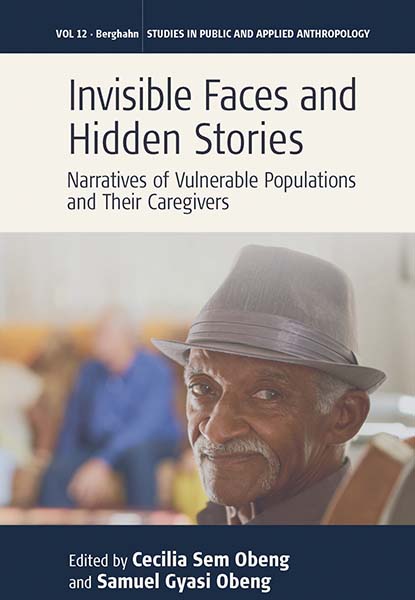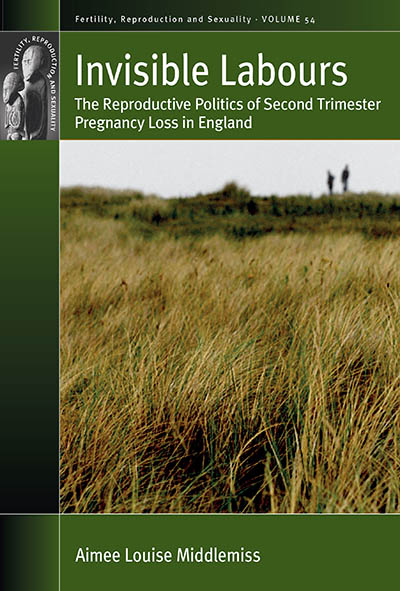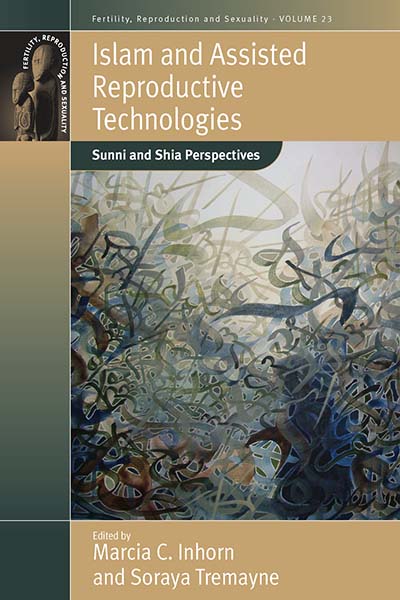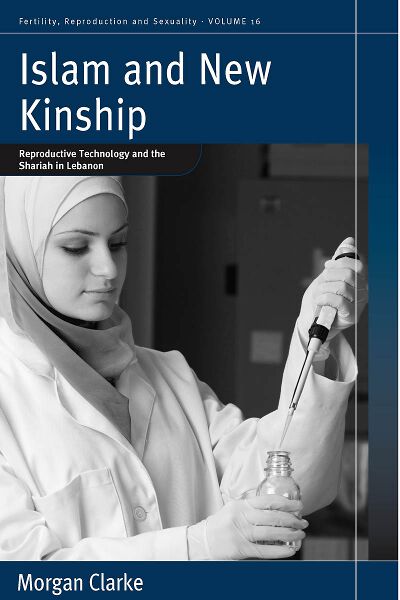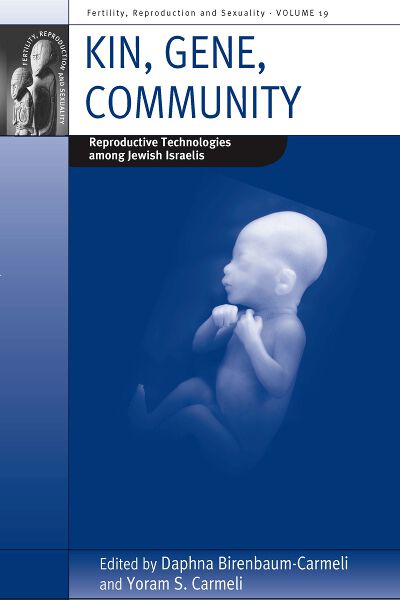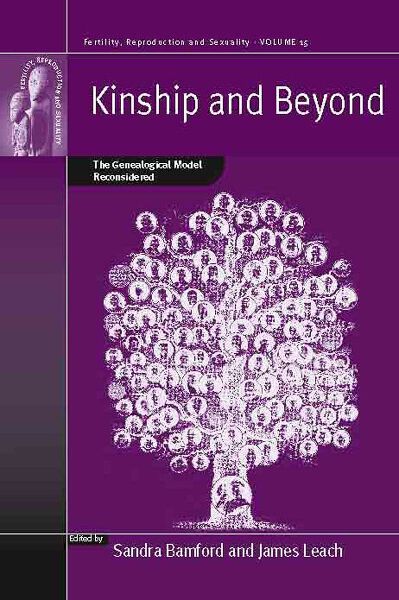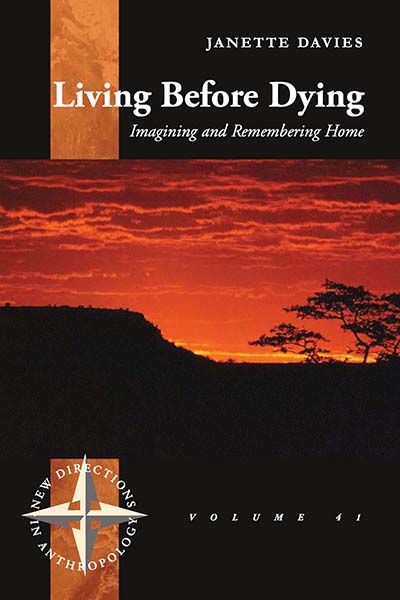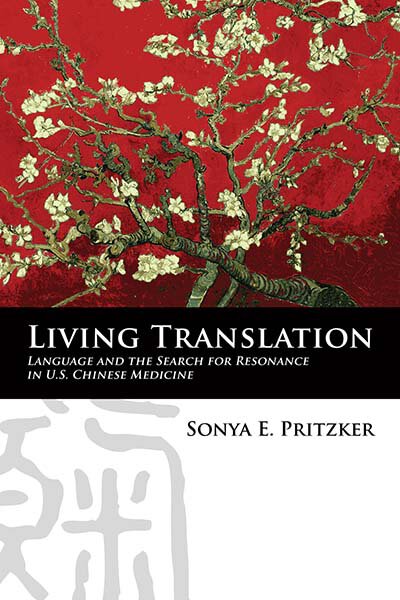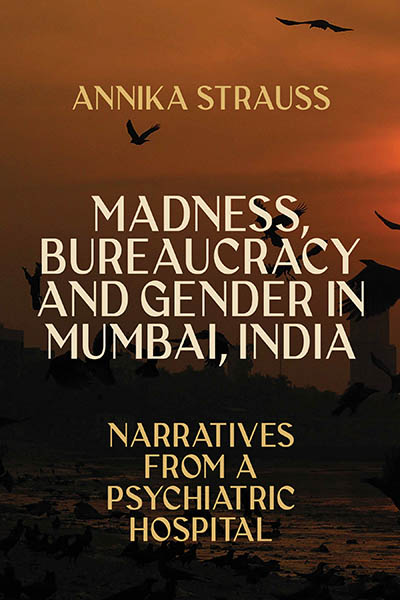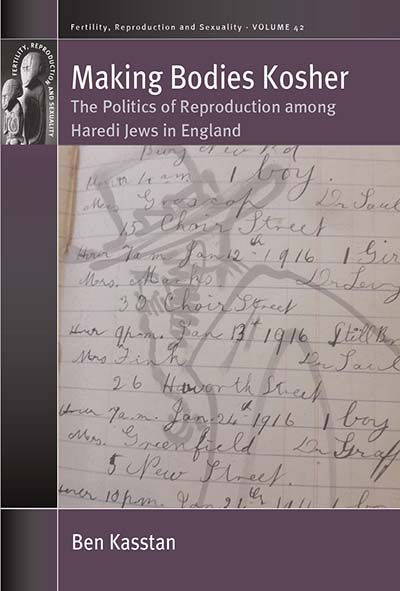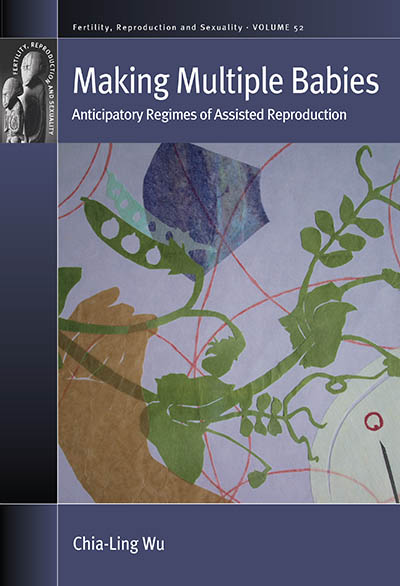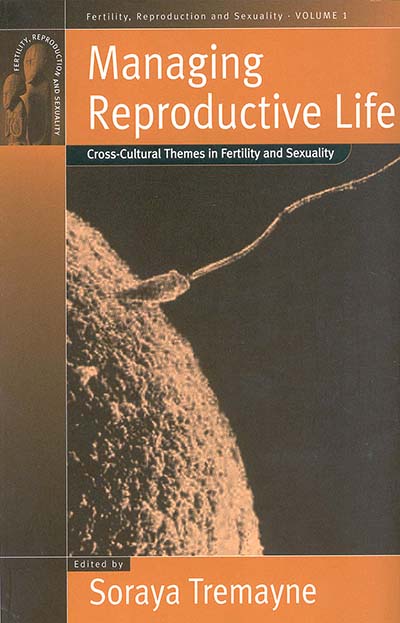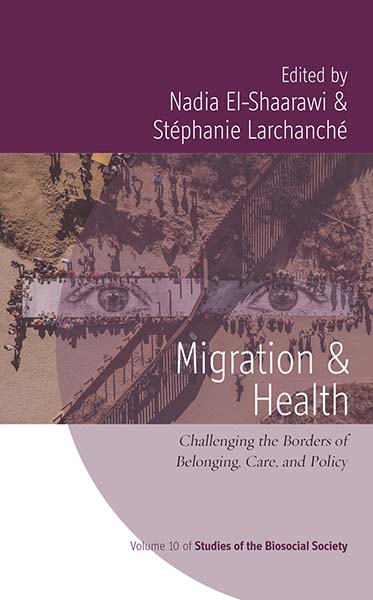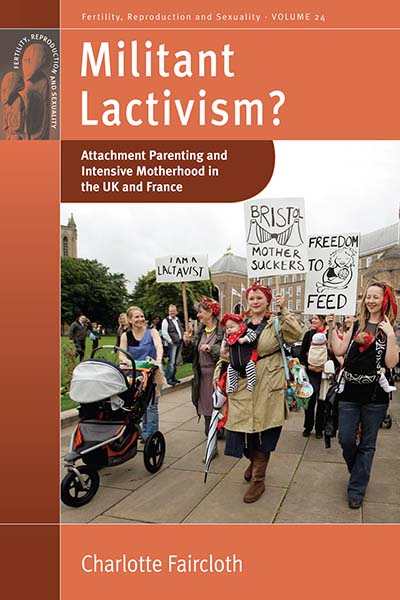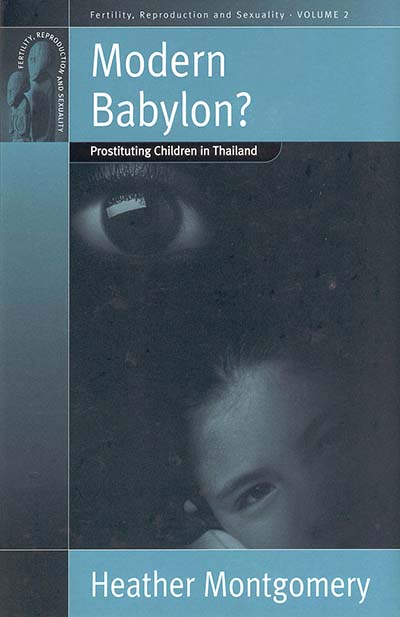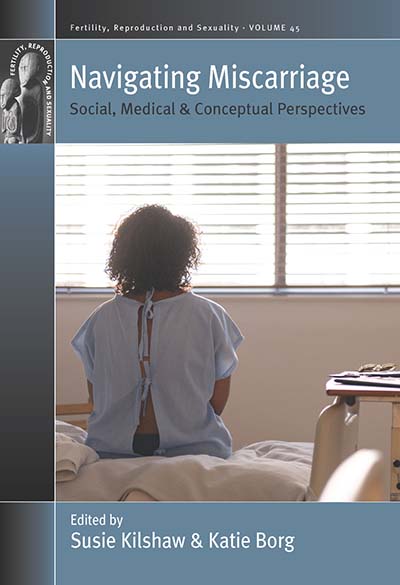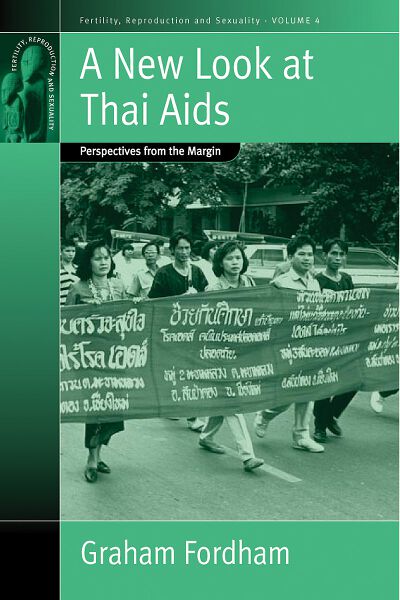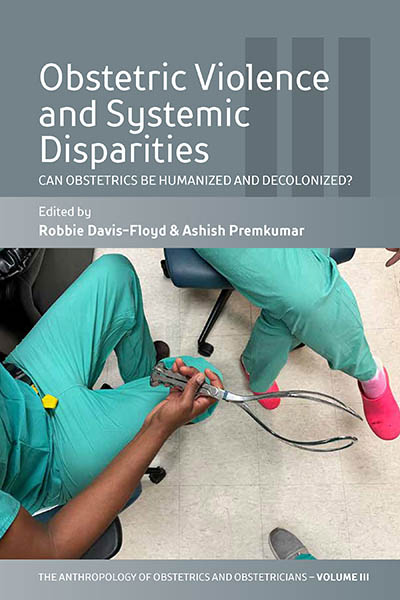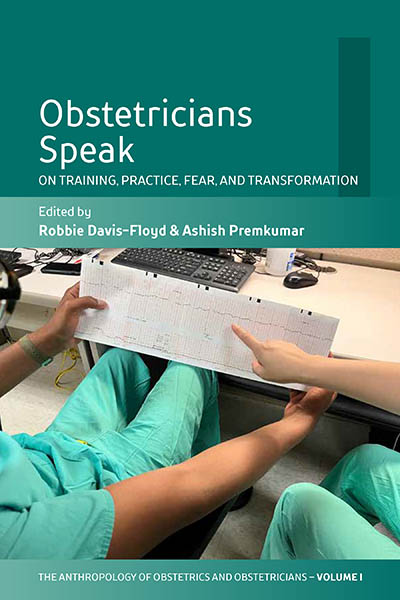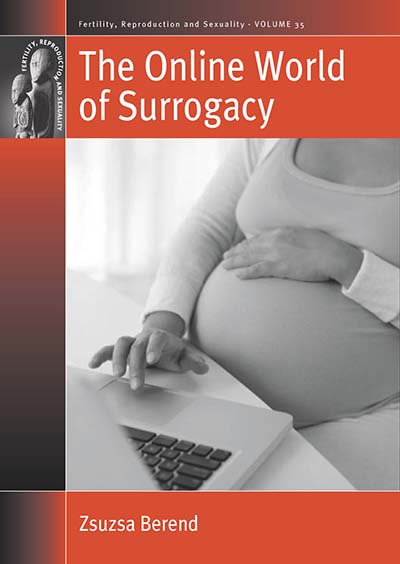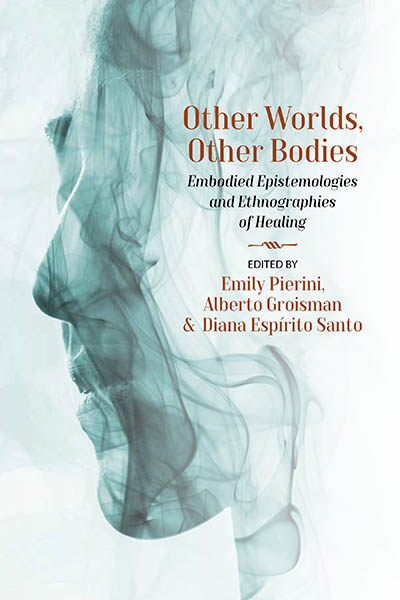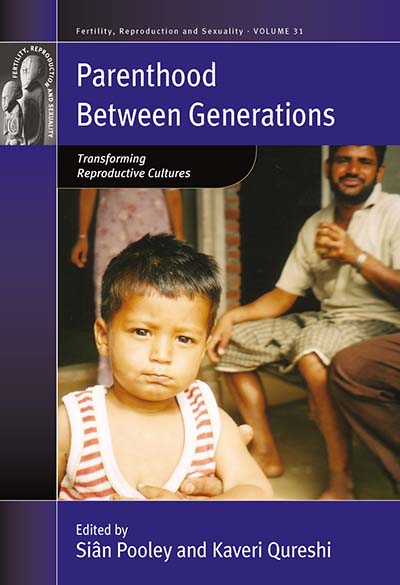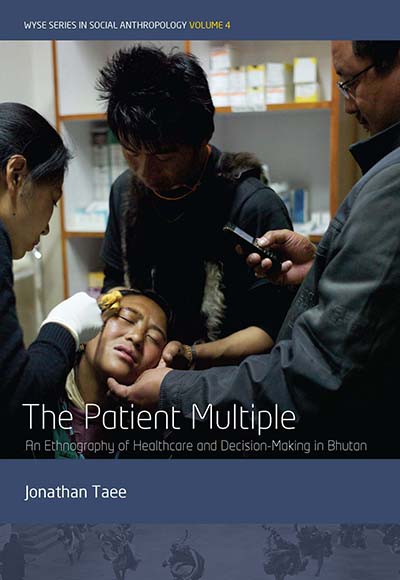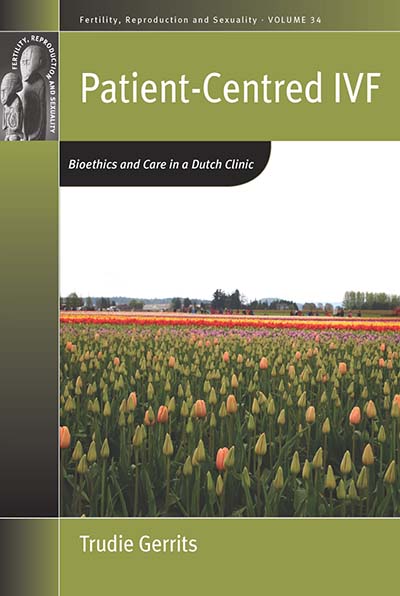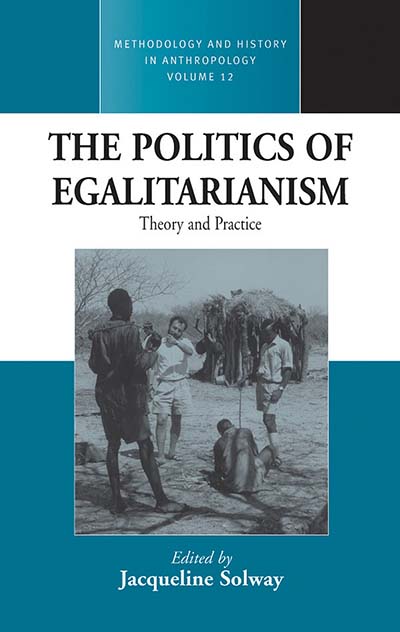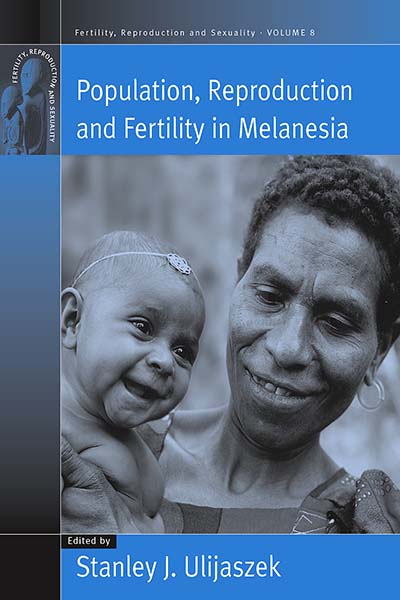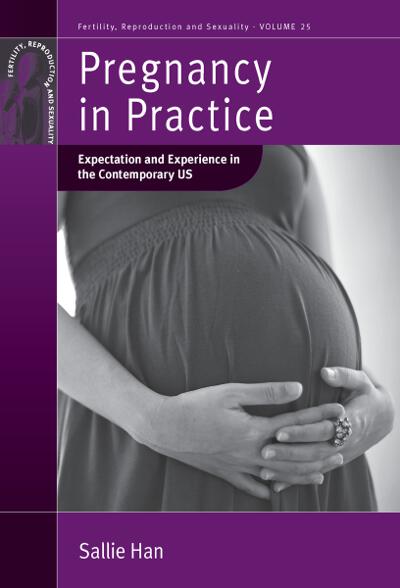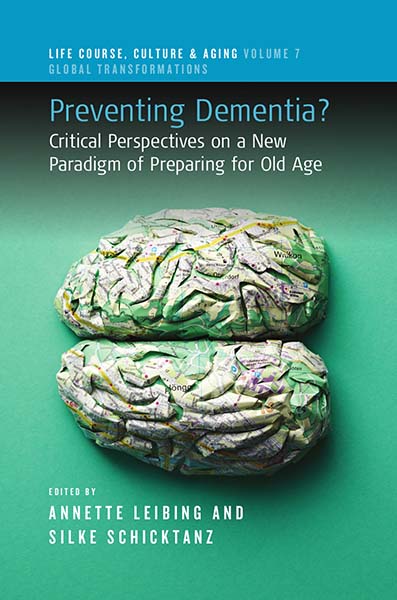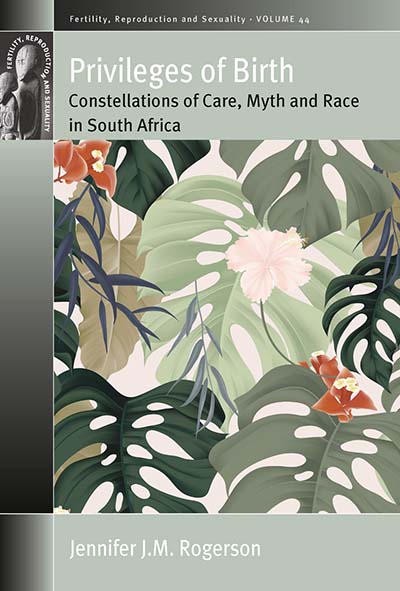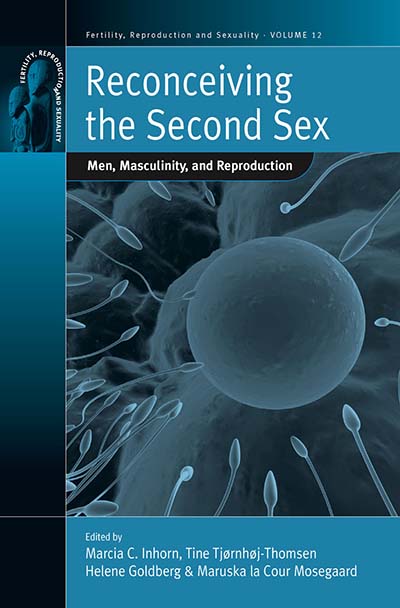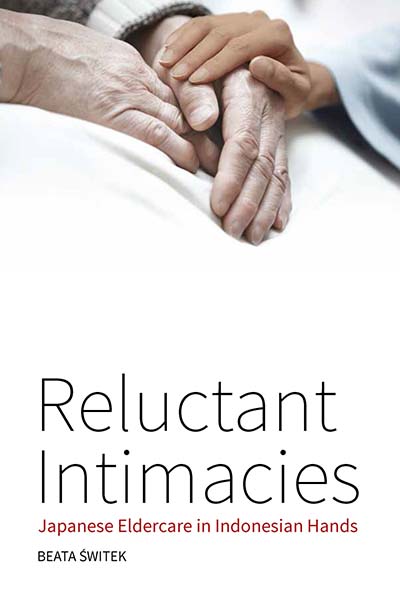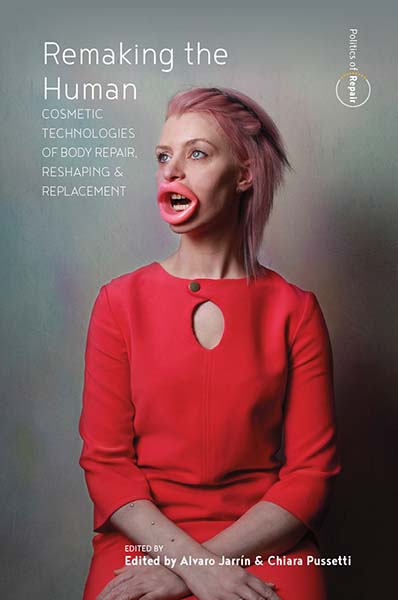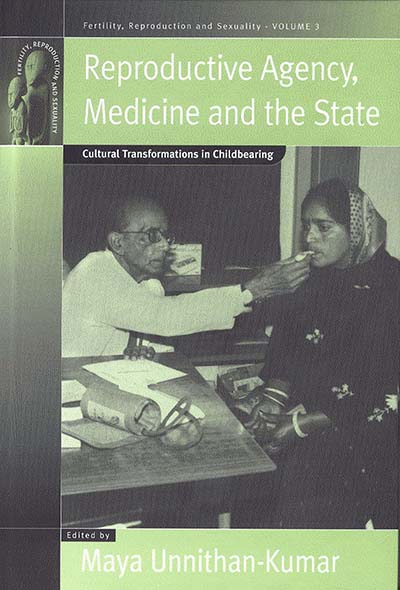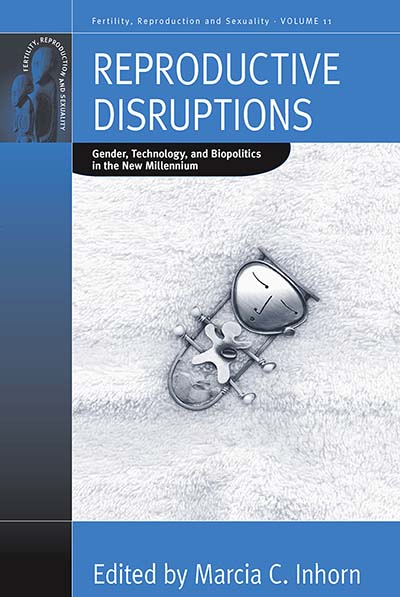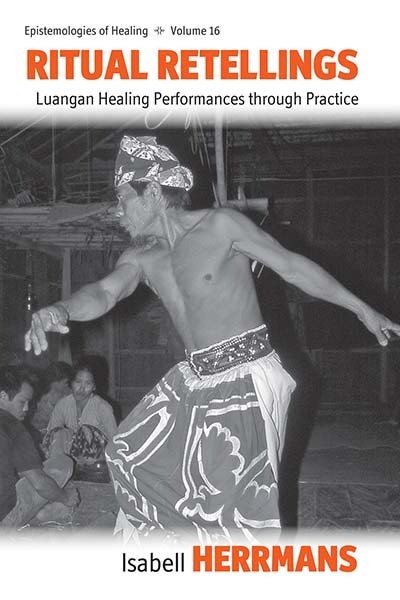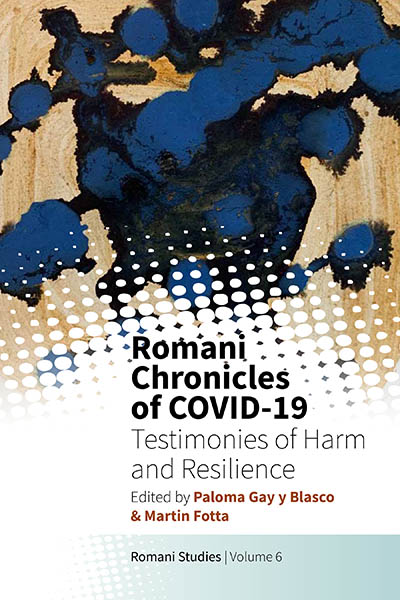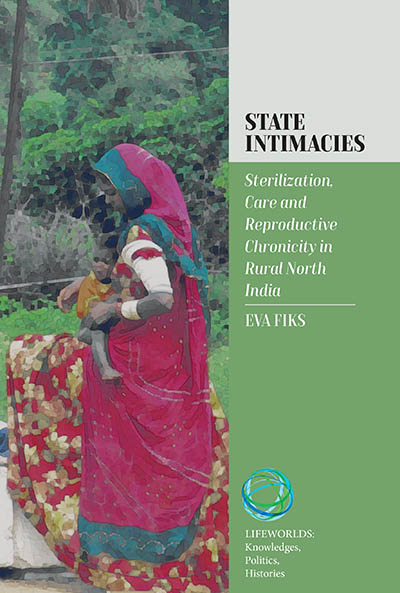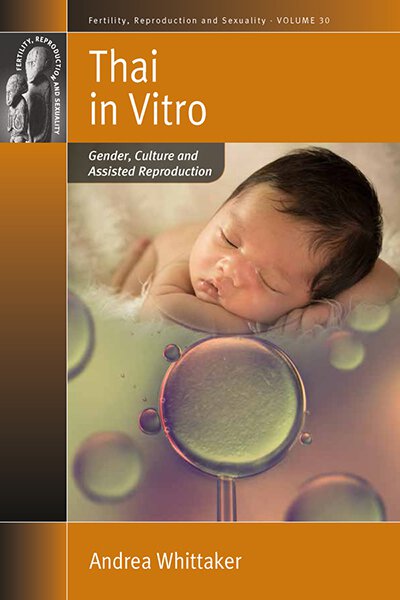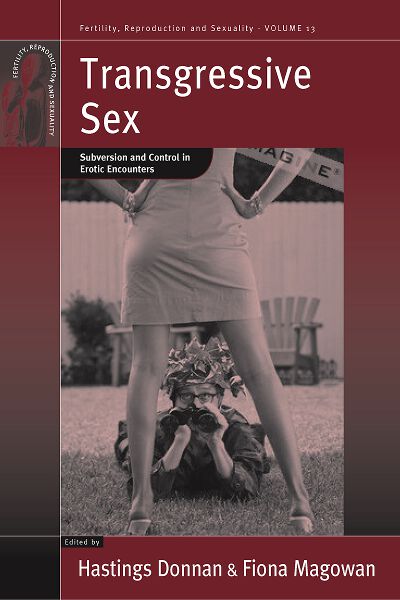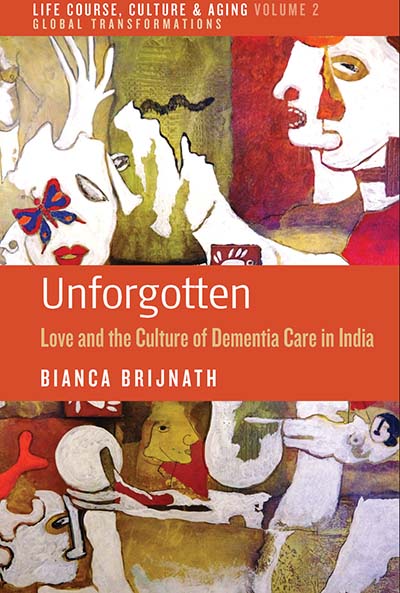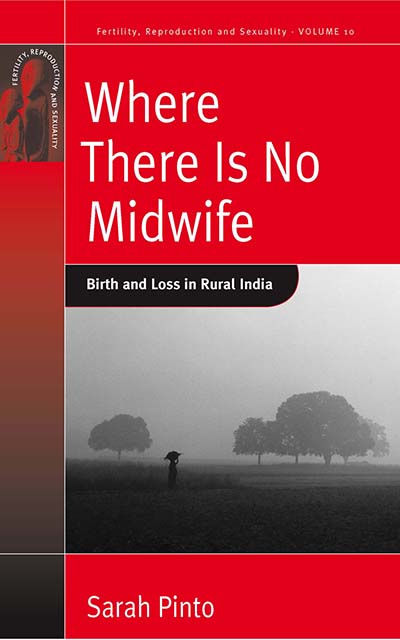Home -> Browse
-

Abortion in Asia
Local Dilemmas, Global Politics
Whittaker, A. (ed)
The issue of abortion forces a confrontation with the effects of poverty and economic inequalities, local moral worlds, and the cultural and social perceptions of the female body, gender, and reproduction. Based on extensive original field research, this provocative collection presents case studies from Thailand, Cambodia, Burma, Vietnam, Bangladesh, Indonesia, and India. It includes powerful insight into the conditions and hard choices faced by women and the circumstances surrounding unplanned pregnancies. It explores the connections among poverty, violence, barriers to access, and the politics and strategies involved in abortion law reform. The contributors analyze these issues within the broader conflicts surrounding women's status, gender roles, religion, nationalism and modernity, as well as the global politics of reproductive health.
Subjects: Anthropology (General) Medical Anthropology
Areas: Asia Asia-Pacific
-

Abortion in Post-revolutionary Tunisia
Politics, Medicine and Morality
Maffi, I.
After the revolution of 2011, the electoral victory of the Islamist party ‘Ennahdha’ allowed previously silenced religious and conservative ideas about women’s right to abortion to be expressed. This also allowed healthcare providers in the public sector to refuse abortion and contraceptive care. This book explores the changes and continuity in the local discourses and practices related to the body, sexuality, reproduction and gender relationships. It also investigates how the bureaucratic apparatus of government healthcare facilities affects the complex moral world of clinicians and patients.
Subjects: Medical Anthropology Gender Studies and Sexuality Political and Economic Anthropology
Area: Africa
-

Access to Assisted Reproductive Technologies
The Case of France and Belgium
Merchant, J. (ed)
Despite France and Belgium sharing and interacting constantly with similar culinary tastes, music and pop culture, access to Assisted Reproductive Technologies are strikingly different. Discrimination written into French law acutely contrasts with non-discriminatory access to ART in Belgium. The contributors of this volume are social scientists from France, Belgium, England and the United States, representing different disciplines: law, political science, philosophy, sociology and anthropology. Each author has attempted, through the prism of their specialties, to demonstrate and analyse how and why this striking difference in access to ART exists.
Subjects: Medical Anthropology Sociology
Areas: France Europe
-

Achieving Procreation
Childlessness and IVF in Turkey
Demircioğlu Göknar, M.
Managing social relationships for childless couples in pro-natalist societies can be a difficult art to master, and may even become an issue of belonging for both men and women. With ethnographic research gathered from two IVF clinics and in two villages in northwestern Turkey, this book explores infertility and assisted reproductive technologies within a secular Muslim population. Göknar investigates the experience of infertility through various perspectives, such as the importance of having a child for women, the mediating role of religion, the power dynamics in same-gender relationships, and the impact of manhood ideologies on the decision for — or against — having IVF.
Subjects: Medical Anthropology Gender Studies and Sexuality
Areas: Middle East & Israel Central/Eastern Europe
-

Against Better Judgment
Akrasia in Anthropological Perspectives
McKearney, P. & Evans, N. H. A. (eds)
Anthropologists have long explained social behaviour as if people always do what they think is best. But what if most of these explanations only work because they are premised upon ignoring what philosophers call 'akrasia' – that is, the possibility that people might act against their better judgment? The contributors to this volume turn an ethnographic lens upon situations in which people seem to act out of line with what they judge, desire and intend. The result is a robust examination of how people around the world experience weaknesses of will, which speaks to debates in both the anthropology of ethics and moral philosophy.
Subjects: Anthropology (General) Anthropology of Religion Medical Anthropology
-

Ageing Without Children
European and Asian Perspectives on Elderly Access to Support Networks
Kreager, P. & Schröder-Butterfill, E. (eds)
Rapid fertility declines and improved longevity are now shifting the overall balance of population towards older ages in many parts of the world. Within this growing population of older people there are many groups with particular needs about which relatively little is known. This collection focuses on one such sub-population, the elderly without children. Few would deny that childlessness poses potential human and welfare problems for older people without them. What is less well known is that comparative anthropological and historical demographic research indicates that childlessness is a recurring social phenomenon that has affected 1 in 5 older women in many cultures and historical periods. High levels of childlessness arise not solely or primarily from biological factors like primary sterility, but from a combination of actors. Many, like non-marriage, delayed childbearing , and pathological sterility, reflect the interaction of social and biological influences.
Also of major importance are factors that remove the support of children from elders' lives: migration, mortality, divorce, remarriage, family enmity, social mobility, and the pressing demands of family and career on younger generations. The papers collected in this volume employ a mixture of quantitative and qualitative methods to define and characterize the experience of ageing without children.
Subjects: Medical Anthropology Sociology
-

Aging and the Digital Life Course
Prendergast, D. & Garattini, C. (eds)
Across the life course, new forms of community, ways of keeping in contact, and practices for engaging in work, healthcare, retail, learning and leisure are evolving rapidly. Breaking new ground in the study of technology and aging, this book examines how developments in smart phones, the internet, cloud computing, and online social networking are redefining experiences and expectations around growing older in the twenty-first century. Drawing on contributions from leading commentators and researchers across the world, this book explores key themes such as caregiving, the use of social media, robotics, chronic disease and dementia management, gaming, migration, and data inheritance, to name a few.
Subjects: Anthropology (General) Medical Anthropology
-

An Anthropology of Global Immunization
Vaccine Politics and Realities in Ethnographic Perspective
Irons, R., Gibbon, S., Cook, J. & Parkhurst, A. (eds)
An Anthropology of Global Immunization explores some of the most pressing vaccine concerns of our time, from HPV to COVID-19, HIV and beyond. This edited collection develops a unique anthropological response to the question of global immunization, addressing issues from vaccine hesitancy and conspiracy theories to local biopolitics. The global perspectives in this volume are bound together by critical anthropological themes of nationalism, governance and local biosocial realities. The collection lays a critical foundation to understand vaccine development, implementation and public health policy.
Subject: Medical Anthropology
-

The Anthropology of the Fetus
Biology, Culture, and Society
Han, S., Betsinger, T. K., & Scott, A. B. (eds)
As a biological, cultural, and social entity, the human fetus is a multifaceted subject which calls for equally diverse perspectives to fully understand. Anthropology of the Fetus seeks to achieve this by bringing together specialists in biological anthropology, archaeology, and cultural anthropology. Contributors draw on research in prehistoric, historic, and contemporary sites in Europe, Asia, North Africa, and North America to explore the biological and cultural phenomenon of the fetus, raising methodological and theoretical concerns with the ultimate goal of developing a holistic anthropology of the fetus.
Subjects: Medical Anthropology Gender Studies and Sexuality Cultural Studies (General)
-

Applications of Anthropology
Professional Anthropology in the Twenty-first Century
Pink, S. (ed)
At the beginning of the twenty-first century the demand for anthropological approaches, understandings and methodologies outside academic departments is shifting and changing. Through a series of fascinating case studies of anthropologists’ experiences of working with very diverse organizations in the private and public sector this volume examines existing and historical debates about applied anthropology. It explores the relationship between the "pure and the impure" – academic and applied anthropology, the question of anthropological identities in new working environments, new methodologies appropriate to these contexts, the skills needed by anthropologists working in applied contexts where multidisciplinary work is often undertaken, issues of ethics and responsibility, and how anthropology is perceived from the ‘outside’. The volume signifies an encouraging future both for the application of anthropology outside academic departments and for the new generation of anthropologists who might be involved in these developments.
Subjects: Applied Anthropology Medical Anthropology
-

Assisted Reproductive Technologies in the Third Phase
Global Encounters and Emerging Moral Worlds
Hampshire, K. & Simpson, B. (eds)
Following the birth of the first “test-tube baby” in 1978, Assisted Reproductive Technologies became available to a small number of people in high-income countries able to afford the cost of private treatment, a period seen as the “First Phase” of ARTs. In the “Second Phase,” these treatments became increasingly available to cosmopolitan global elites. Today, this picture is changing — albeit slowly and unevenly — as ARTs are becoming more widely available. While, for many, accessing infertility treatments remains a dream, these are beginning to be viewed as a standard part of reproductive healthcare and family planning. This volume highlights this “Third Phase” — the opening up of ARTs to new constituencies in terms of ethnicity, geography, education, and class.
Subject: Medical Anthropology
-

Assisting Reproduction, Testing Genes
Global Encounters with the New Biotechnologies
Birenbaum-Carmeli, D. & Inhorn, M. C. (eds)
Following the routinization of assisted reproduction in the industrialized world, technologies such as in vitro fertilization, preimplantation genetic diagnosis, and DNA-based paternity testing have traveled globally and are now being offered to couples in numerous non-Western countries. This volume explores the application and impact of these advanced reproductive and genetic technologies in societies across the globe. By highlighting both the cross-cultural similarities and diverse meanings that technologies may assume as they enter multiple contexts, the book aims to foster understanding of both the technologies and the settings. Enhanced by cross-cultural perspectives, the book addresses the challenges that globalization presents to local understandings of science, technology, and medicine.
Subjects: Medical Anthropology Sociology
-

Asymmetrical Conversations
Contestations, Circumventions, and the Blurring of Therapeutic Boundaries
Naraindas, H., Quack, J., & Sax, W. S. (eds)
Ideas about health are reinforced by institutions and their corresponding practices, such as donning a patient's gown in a hospital or prostrating before a healing shrine. Even though we are socialized into regarding such ideologies as "natural" and unproblematic, we sometimes seek to bypass, circumvent, or even transcend the dominant ideologies of our cultures as they are manifested in the institutions of health care. The contributors to this volume describe such contestations and circumventions of health ideologies, and the blurring of therapeutic boundaries, on the basis of case studies from India, the South Asian Diaspora, and Europe, focusing on relations between body, mind, and spirit in a variety of situations. The result is not always the "live and let live" medical pluralism that is described in the literature.
Subjects: Medical Anthropology Anthropology of Religion
Areas: Asia Europe
-

Being a Sperm Donor
Masculinity, Sexuality, and Biosociality in Denmark
Mohr, S.
What does it mean to be a man in our biomedical day and age? Through ethnographic explorations of the everyday lives of Danish sperm donors, Being a Sperm Donor explores how masculinity and sexuality are reconfigured in a time in which the norms and logics of (reproductive) biomedicine have become ordinary. It investigates men’s moral reasoning regarding donation, their handling of transgressive experiences at the sperm bank, and their negotiations of gender, sexuality, intimacy, and relatedness, showing how the socio-cultural and political dimensions of (reproductive) biomedicine become intertwined with men’s intimate sense of self.
Subjects: Medical Anthropology Gender Studies and Sexuality Sociology
Area: Northern Europe
-

Biomedical Entanglements
Conceptions of Personhood in a Papua New Guinea Society
Herbst, F. A.
Biomedical Entanglements is an ethnographic study of the Giri people of Papua New Guinea, focusing on the indigenous population’s interaction with modern medicine. In her fieldwork, Franziska A. Herbst follows the Giri people as they circulate within and around ethnographic sites that include a rural health center and an urban hospital. The study bridges medical anthropology and global health, exploring how the ‘biomedical’ is imbued with social meaning and how biomedicine affects Giri ways of life.
Subjects: Anthropology (General) Medical Anthropology
Area: Asia-Pacific
-

Borders across Healthcare
Moral Economies of Healthcare and Migration in Europe
Sahraoui, N. (ed)
Examining which actors determine undocumented migrants’ access to healthcare on the ground, this volume looks at what happens in the daily interactions between administrative personnel, healthcare professionals and migrant patients in healthcare institutions across Europe. Borders across Healthcare explores contemporary moral economies of the healthcare-migration nexus. The volume documents the many ways in which borders come to disrupt healthcare settings and illuminates how judgements of a health-related deservingness become increasingly important, producing hierarchies that undermine a universal right to healthcare.
Subjects: Medical Anthropology Mobility Studies Sociology Sustainable Development Goals
Area: Europe
-

Breast Feeding and Sexuality
Behaviour, Beliefs and Taboos among the Gogo Mothers in Tanzania
Mabilia, M.
Whereas in western countries breastfeeding is an uncontroversial, purely personal issue, in most parts of the world mother and baby form part of a network of interpersonal relations with its own rules and expectations. In this study, the author examines the cultural and social context of breastfeeding among the Gogo women of the Cigongwe's village in Tanzania, as part of the Paediatric Programme of Doctors with Africa, based in Padua. The focus is on mothers' behaviour and post partum taboos as key elements in Gogo understanding of the vicissitudes of the breast feeding process. This nutritional period is subject to many different events both physical and social that may upset the natural and intense link between mother and child. Any violation of cultural norms, particularly those dealing with sexual behaviour, marriage and reproduction, can, in the eyes of the Gogo, put at risk the correct development of an infant with serious consequences both for the baby's health as well as for the woman's image as mother and wife.
Subjects: Medical Anthropology Gender Studies and Sexuality
Area: Africa
-

Capturing Quicksilver
The Position, Power, and Plasticity of Chinese Medicine in Singapore
Smith, A. A.
Since the turn of the century Singapore has sustained a reputation for both austere governance and cutting-edge biomedical facilities and research. Seeking to emphasize Singapore’s capacity for “modern medicine” and strengthen their burgeoning biopharmaceutical industry, this image has explicitly excluded Chinese medicine – despite its tremendous popularity amongst Singaporeans from all walks of life, and particularly amongst Singapore’s ethnic Chinese majority. This book examines the use and practice of Chinese medicine in Singapore, especially in everyday life, and contributes to anthropological debates regarding the post-colonial intersection of knowledge, identity, and governmentality, and to transnational studies of Chinese medicine as a permeable, plural, and fluid practice.
Subjects: Medical Anthropology Anthropology (General)
Area: Asia-Pacific
-

Care across Distance
Ethnographic Explorations of Aging and Migration
Hromadžić, A. & Palmberger, M. (eds)
World-wide migration has an unsettling effect on social structures, especially on aging populations and eldercare. This volume investigates how taken-for-granted roles are challenged, intergenerational relationships transformed, economic ties recalibrated, technological innovations utilized, and spiritual relations pursued and desired, and asks what it means to care at a distance and to age abroad. What it does show is that trans-nationalization of care produces unprecedented convergences of people, objects and spaces that challenge our assumptions about the who, how, and where of care.
Subjects: Medical Anthropology Refugee and Migration Studies
-

Childbirth, Midwifery and Concepts of Time
McCourt, C. (ed)
All cultures are concerned with the business of childbirth, so much so that it can never be described as a purely physiological or even psychological event. This volume draws together work from a range of anthropologists and midwives who have found anthropological approaches useful in their work. Using case studies from a variety of cultural settings, the writers explore the centrality of the way time is conceptualized, marked and measured to the ways of perceiving and managing childbirth: how women, midwives and other birth attendants are affected by issues of power and control, but also actively attempt to change established forms of thinking and practice. The stories are engaging as well as critical and invite the reader to think afresh about time, and about reproduction.
Subject: Medical Anthropology
-

Chinese Medicine in East Africa
An Intimacy with Strangers
Hsu, E.
Based on fieldwork conducted between 2001-2008 in urban East Africa, this book explores who the patients, practitioners and paraprofessionals doing Chinese medicine were in this early period of renewed China-Africa relations. Rather than taking recourse to the ‘placebo effect’, the author explains through the spatialities and materialities of the medical procedures provided why - apart from purchasing the Chinese antimalarial called Artemisinin - locals would try out their ‘alternatively modern’ formulas for treating a wide range of post-colonial disorders and seek their sexual enhancement medicines.
Subject: Medical Anthropology
Area: Africa
-

Cognition, Risk, and Responsibility in Obstetrics
Anthropological Analyses and Critiques of Obstetricians’ Practices
Davis-Floyd, R. & Premkumar, A. (eds)
Volume 2 in this landmark 3-volume series The Anthropology of Obstetrics and Obstetricians: The Practice, Maintenance, and Reproduction of a Biomedical Profession looks at cognition, risk, and responsibility in obstetrics.
This volume contains social science analyses of Swiss, Chilean, Mexican, US, Greek, and Irish obstetrics and obstetricians, particularly around their reasons for the overuse of cesareans; a chapter on "4 Stages of Cognition" and a condition called "Substage," which describes how these concepts apply to obstetricians; and a chapter on why obstetricians fear home birth.
This book is a must-read for students, social scientists, and all maternity care practitioners who seek to understand obstetricians' differing ideologies and motives for practicing as they do.
An excerpt from Vania Smith-Oka and Lydia Dixon's chapter:
For systemic changes to occur, we must understand doctors’ decision-making rationales and take their fear-based perspectives about risk and responsibility into account, while also paying attention to the concerns raised by scholars and activists.Subjects: Medical Anthropology Gender Studies and Sexuality
-

Conceiving Kinship
Assisted Conception, Procreation and Family in Southern Europe
Bonaccorso, M. M. E.
Conceiving Kinship is an in-depth journey, the first of its kind, into how heterosexual, lesbian and gay couples using programmes of gamete donation conceptualize and make Italian kinship. It explores the provision of treatment in clinical and non-clinical settings at a time when Italy was considered the 'Wild-West' of assisted conception. This compelling study provides a new perspective on hotly debated issues in kinship studies and the modern medical technologies; it offers fresh insights into longstanding questions of cultural continuities and discontinuities in European kinship.
Subjects: Medical Anthropology Gender Studies and Sexuality
Area: Southern Europe
-

Conceptions
Infertility and Procreative Technologies in India
Bharadwaj, A.
Infertility and assisted reproductive technologies in India lie at the confluence of multiple cultural conceptions. These ‘conceptions’ are key to understanding the burgeoning spread of assisted reproductive technologies and the social implications of infertility and childlessness in India. This longitudinal study is situated in a number of diverse locales which, when taken together, unravel the complex nature of infertility and assisted conception in contemporary India.
Subject: Medical Anthropology
Area: Asia
-

Configuring Contagion
Ethnographies of Biosocial Epidemics
Meinert, L. & Seeberg, J. (eds)
Expanding our understanding of contagion beyond the typical notions of infection and pandemics, this book widens the field to include the concept of biosocial epidemics. The chapters propose varied and detailed answers to questions about epidemics and their contagious potential for specific infections and non-infectious conditions. Together they explore how inseparable social and biological processes configure co-existing influences, which create epidemics, and in doing so stress the role of social inequality in these processes. The authors compellingly show that epidemics do not spread evenly in populations or through simple coincidental biological contagion: they are biosocially structured and selective, and happen under specific economic, political and environmental conditions. This volume illustrates that an understanding of biosocial factors is vital for ensuring effective strategies for the containment of epidemics.
Subjects: Medical Anthropology Sociology Sustainable Development Goals
-

Cosmos, Gods and Madmen
Frameworks in the Anthropologies of Medicine
Littlewood, R. & Lynch, R. (eds)
The social anthropology of sickness and health has always been concerned with religious cosmologies: how societies make sense of such issues as prediction and control of misfortune and fate; the malevolence of others; the benevolence (or otherwise) of the mystical world; local understanding and explanations of the natural and ultra-human worlds. This volume presents differing categorizations and conflicts that occur as people seek to make sense of suffering and their experiences. Cosmologies, whether incorporating the divine or as purely secular, lead us to interpret human action and the human constitution, its ills and its healing and, in particular, ways which determine and limit our very possibilities.
Subjects: Medical Anthropology Anthropology of Religion
-

Cousin Marriages
Between Tradition, Genetic Risk and Cultural Change
Shaw, A. & Raz, A. (eds)
Juxtaposing contributions from geneticists and anthropologists, this volume provides a contemporary overview of cousin marriage and what is happening at the interface of public policy, the management of genetic risk and changing cultural practices in the Middle East and in multi-ethnic Europe. It offers a cross-cultural exploration of practices of cousin marriage in the light of new genetic understanding of consanguineous marriage and its possible health risks. Overall, the volume presents a reflective, interdisciplinary analysis of the social and ethical issues raised by both the discourse of risk in cousin marriage, as well as existing and potential interventions to promote “healthy consanguinity” via new genetic technologies.
Subject: Medical Anthropology
-

The Cultural Politics of Reproduction
Migration, Health and Family Making
Unnithan-Kumar, M. & Khanna, S. K. (eds)
Charting the experiences of internally or externally migrant communities, the volume examines social transformation through the dynamic relationship between movement, reproduction, and health. The chapters examine how healthcare experiences of migrants are not only embedded in their own unique health worldviews, but also influenced by the history, policy, and politics of the wider state systems. The research among migrant communities an understanding of how ideas of reproduction and “cultures of health” travel, how healing, birth and care practices become a result of movement, and how health-related perceptions and reproductive experiences can define migrant belonging and identity.
Subjects: Medical Anthropology Refugee and Migration Studies Gender Studies and Sexuality
-

Cyborg Mind
What Brain–Computer and Mind–Cyberspace Interfaces Mean for Cyberneuroethics
MacKellar, C.
With the development of new direct interfaces between the human brain and computer systems, the time has come for an in-depth ethical examination of the way these neuronal interfaces may support an interaction between the mind and cyberspace.
In so doing, this book does not hesitate to blend disciplines including neurobiology, philosophy, anthropology and politics. It also invites society, as a whole, to seek a path in the use of these interfaces enabling humanity to prosper while avoiding the relevant risks. As such, the volume is the first extensive study in cyberneuroethics, a subject matter which is certain to have a significant impact in the 21st century and beyond.
Subjects: Medical Anthropology Sociology
-

The Dance of Nurture
Negotiating Infant Feeding
Van Esterik, P. & O'Connor, R. A.
Breastfeeding and child feeding at the center of nurturing practices, yet the work of nurture has escaped the scrutiny of medical and social scientists. Anthropology offers a powerful biocultural approach that examines how custom and culture interact to support nurturing practices. Our framework shows how the unique constitutions of mothers and infants regulate each other. The Dance of Nurture integrates ethnography, biology and the political economy of infant feeding into a holistic framework guided by the metaphor of dance. It includes a critique of efforts to improve infant feeding practices globally by UN agencies and advocacy groups concerned with solving global nutrition and health problems.
Subjects: Medical Anthropology Gender Studies and Sexuality
-

The Devil is Disorder
Bodies, Spirits and Misfortune in a Trinidadian Village
Lynch, R.
What role might the Devil have in health and illness? The Devil is Disorder explores constructions of the body, health, illness and wider misfortune in a Trinidadian village where evangelical Christianity is growing in popularity. Based on long-term ethnography and locating the village in historical and global context, the book takes a nuanced cosmological approach to situate evangelical Christian understandings as shaping and being shaped by their context and, in the process, shaping individuals themselves. As people move from local to global subjects, health here stretches beyond being a matter of individual bodies and is connected to worldwide flows and networks, spirit entities, and expansive moral orders.
Subjects: Medical Anthropology Anthropology of Religion Sociology
Area: Latin America and the Caribbean
-

Dust Inside
Fighting and Living with Asbestos-Related Disasters in Brazil
Mazzeo, A.
Toxic production, disrupted lives and contaminated bodies. Care for unacknowledged suffering, incurable cancers, and immeasurable losses. This book bears witness to the invisible disasters provoked by the asbestos market worldwide and gives a voice to the communities of survivors who struggle daily in the name of social and environmental justice. Grounded in a profound, touching ethnography, this book offers an original contribution to understanding global health disasters and grassroots health-based activism.
Subjects: Medical Anthropology Environmental Studies (General)
Area: Latin America and the Caribbean
-

Embodying Borders
A Migrant’s Right to Health, Universal Rights and Local Policies
Ferrero, L., Quagliariello, C., & Vargas, A. C. (eds)
Based on extensive field research, the essays in this volume illuminate the experiences of migrants from their own point of view, providing a critical understanding of the complex social reality in which each experience is grounded. Access to medical care for migrants is a fundamental right which is often ignored. The book provides a critical understanding of the social reality in which social inequalities are grounded and offers the opportunity to show that right to health does not correspond uniquely with access to healthcare.
Subjects: Refugee and Migration Studies Medical Anthropology
-

The Ethics of the New Eugenics
MacKellar, C. & Bechtel, C. (eds)
Strategies or decisions aimed at affecting, in a manner considered to be positive, the genetic heritage of a child in the context of human reproduction are increasingly being accepted in contemporary society. As a result, unnerving similarities between earlier selection ideology so central to the discredited eugenic regimes of the 20th century and those now on offer suggest that a new era of eugenics has dawned. The time is ripe, therefore, for considering and evaluating from an ethical perspective both current and future selection practices. This inter-disciplinary volume blends research from embryology, genetics, philosophy, sociology, psychology, and history. In so doing, it constructs a thorough picture of the procedures emerging from today’s reproductive developments, including a rigorous ethical argumentation concerning the possible advantages and risks related to the new eugenics.
Subjects: Medical Anthropology Sociology
-

European Kinship in the Age of Biotechnology
Edwards, J. & Salazar, C. (eds)
Interest in the study of kinship, a key area of anthropological enquiry, has recently reemerged. Dubbed ‘the new kinship’, this interest was stimulated by the ‘new genetics’ and revived interest in kinship and family patterns. This volume investigates the impact of biotechnology on contemporary understandings of kinship, of family and ‘belonging’ in a variety of European settings and reveals similarities and differences in how kinship is conceived. What constitutes kinship for different publics? How significant are biogenetic links? What does family resemblance tell us? Why is genetically modified food an issue? Are ‘genes’ and ‘blood’ interchangeable? It has been argued that the recent prominence of genetic science and genetic technologies has resulted in a ‘geneticization’ of social life; the ethnographic examples presented here do show shifts occurring in notions of ‘nature’ and of what is ‘natural’. But, they also illustrate the complexity of contemporary kinship thinking in Europe and the continued interconnectedness of biological and sociological understandings of relatedness and the relationship between nature and nurture.
Subject: Medical Anthropology
Area: Europe
-

Fatness and the Maternal Body
Women's Experiences of Corporeality and the Shaping of Social Policy
Unnithan-Kumar, M. & Tremayne, S. (eds)
Obesity is a rising global health problem. On the one hand a clearly defined medical condition, it is at the same time a corporeal state embedded in the social and cultural perception of fatness, body shape and size. Focusing specifically on the maternal body, contributors to the volume examine how the language and notions of obesity connect with, or stand apart from, wider societal values and moralities to do with the body, fatness, reproduction and what is considered ‘natural’. A focus on fatness in the context of human reproduction and motherhood offers instructive insights into the global circulation and authority of biomedical facts on fatness (as ‘risky’ anti-fit, for example). As with other social and cultural studies critical of health policy discourse, this volume challenges the spontaneous connection being made in scientific and popular understanding between fatness and ill health.
Subjects: Medical Anthropology Gender Studies and Sexuality
-

Fertility, Conjuncture, Difference
Anthropological Approaches to the Heterogeneity of Modern Fertility Declines
Kreager, P. & Bochow, A. (eds)
In the last forty years anthropologists have made major contributions to understanding the heterogeneity of reproductive trends and processes underlying them. Fertility transition, rather than the story of the triumphant spread of Western birth control rationality, reveals a diversity of reproductive means and ends continuing before, during, and after transition. This collection brings together anthropological case studies, placing them in a comparative framework of compositional demography and conjunctural action. The volume addresses major issues of inequality and distribution which shape population and social structures, and in which fertility trends and the formation and size of families are not decided solely or primarily by reproduction.
Subjects: Medical Anthropology Gender Studies and Sexuality
-

Fierce Medicines, Fragile Socialities
Grounding Global HIV Treatment in Tanzania
Mattes, D.
Set in Tanga, a city on the Tanzanian Swahili coast, Dominik Mattes examines the implementation of antiretroviral HIV-treatment (ART) in the area, exploring the manifold infrastructural and social fragilities of treatment provision in public HIV clinics as well as patients’ multi-layered struggles of coming to terms with ART in their everyday lives. Based on extensive ethnographic fieldwork, the book shows that, notwithstanding the massive rollout of ART, providing treatment and living a life with HIV in settings like Tanga continue to entail social, economic, and moral challenges and long-term uncertainties, which contradict the global rhetoric of the “normalization of HIV”.
Subjects: Medical Anthropology Development Studies Sustainable Development Goals
Area: Africa
-

Fragile Futures
Ambiguities of Care in Burkina Faso
Samuelsen, H.
Caring for small children and the family in Burkina Faso is hard work. Although the health infrastructure in Burkina Faso is weak and many citizens feel neglected by the state, Fragile Futures shows that the state continues to play an important role in people’s engagements and hopes for a better future. Based on more than twenty years of research engagement with Burkina Faso, it is an ethnography of how rural citizens address ambiguities of sickness and care and try to secure a decent future for themselves and their families.
Subjects: Anthropology (General) Medical Anthropology Development Studies Sustainable Development Goals
Area: Africa
-

From Legacies to Futures
The Lifeworlds of Older Adults in Europe
Seidel, K., Prendergast, D., & Saris, A. J.
Older adults want to exercise a sense of control over their relationships, structures and surroundings as they navigate the later life course. Through detailed ethnographic case studies, this book examines the dynamic lifeworlds of a hundred and seven community-dwelling older adults in Europe before and during the COVID-19 pandemic. It explores the importance of agency, the frictions between self-perceptions of age and outside impositions and the need to deconstruct old age as a homogenising category. These insights challenge simple narratives of older persons as social burdens by highlighting the complex roles they fill in family, neighbourhood and communities.
Subjects: Anthropology (General) Medical Anthropology Sociology
Area: Europe
-

From Virtue to Vice
Negotiating Anorexia
O' Connor, R. A. & Esterik, P. van
The recovered possess the key to overcoming anorexia. Although individual sufferers do not know how the affliction takes hold, piecing their stories together reveals two accidental afflictions. One is that activity disorders—dieting, exercising, healthy eating—start as virtuous practices, but become addictive obsessions. The other affliction is a developmental disorder, which also starts with the virtuous—those eager for challenge and change. But these overachievers who seek self-improvement get a distorted life instead. Knowing anorexia from inside, the recovered offer two watchwords on helping those who suffer. One is "negotiate," to encourage compromise, which can aid recovery where coercion fails. The other is "balance," for the ill to pursue mind-with-body activities to defuse mind-over-body battles.
Subjects: Medical Anthropology Food & Nutrition Anthropology (General)
Area: North America
-

The Global Age-Friendly Community Movement
A Critical Appraisal
Stafford, P. B. (ed)
The age-friendly community movement is a global phenomenon, currently growing with the support of the WHO and multiple international and national organizations in the field of aging. Drawing on an extensive collection of international case studies, this volume provides an introduction to the movement. The contributors – both researchers and practitioners – touch on a number of current tensions and issues in the movement and offer a wide-ranging set of recommendations for advancing age-friendly community development. The book concludes with a call for a radical transformation of a medical and lifestyle model of aging into a relational model of health and social/individual wellbeing.
Subjects: Medical Anthropology Sociology
-

Global Fluids
The Cultural Politics of Reproductive Waste and Value
Kroløkke, C.
In the fertility and cosmetics industries, women’s body products – such as urine, eggs, and placentas – have moved from being seen as waste to becoming valuable ingredients. Taking a sociological and anthropological perspective, the author focuses in particular on the role that countries like Denmark, Spain, the Netherlands, and Japan play in the reproductive products industry, and discusses the moral limits of the cultural and rhetorical trajectories that turn women’s body products into internationally mobile substances.
Subjects: Medical Anthropology Gender Studies and Sexuality Sociology
-

Globalized Fatherhood
Inhorn, M. C., Chavkin, W. & Navarro, J.-A. (eds)
Using an entirely new conceptual vocabulary through which to understand men’s experiences and expectations at the dawn of the twenty-first century, this path-breaking volume focuses on fatherhood around the globe, including transformations in fathering, fatherhood, and family life. It includes new work by anthropologists, sociologists, and cultural geographers, working in settings from Peru to India to Vietnam. Each chapter suggests that men are responding to globalization as fathers in creative and unprecedented ways, not only in the West, but also in numerous global locations.
Subjects: Medical Anthropology Gender Studies and Sexuality
-

Healing Roots
Anthropology in Life and Medicine
Laplante, J.
Umhlonyane, also known as Artemisia afra, is one of the oldest and best-documented indigenous medicines in South Africa. This bush, which grows wild throughout the sub-Saharan region, smells and tastes like “medicine,” thus easily making its way into people’s lives and becoming the choice of everyday healing for Xhosa healer-diviners and Rastafarian herbalists. This “natural” remedy has recently sparked curiosity as scientists search for new molecules against a tuberculosis pandemic while hoping to recognize indigenous medicine. Laplante follows umhlonyane on its trails and trials of becoming a biopharmaceutical — from the “open air” to controlled environments — learning from the plant and from the people who use it with hopes in healing.
Subject: Medical Anthropology
Area: Africa
-

Health and Difference
Rendering Human Variation in Colonial Engagements
Widmer, A. & Lipphardt, V. (eds)
Human variation represented a central research topic for life scientists and posed challenging administrative issues for colonial bureaucrats in the first half of the 20th century. By following scientists’ and administrators’ interests in innovating styles and tools for making and circulating documents, in reshaping landscapes and environments, and in fixing distances between humans, the book advances new understandings of the materiality of colonial institutional life and governance.
Subjects: Medical Anthropology Colonial History
-

Healthcare in Motion
Immobilities in Health Service Delivery and Access
Vindrola-Padros, C., Johnson G. A., & Pfister, A. E. (eds)
How does the need to obtain and deliver health services engender particular (im)mobility forms? And how is mobility experienced and imagined when it is required for healthcare access or delivery? Guided by these questions, Healthcare in Motion explores the dynamic interrelationship between mobility and healthcare, drawing on case studies from across the world and shedding light on the day-to-day practices of patients and professionals.
Subjects: Mobility Studies Medical Anthropology
-

Illness and Enlightenment
Exploring Tibetan Perspectives on Madness in Text and Everyday Life
Deane, S.
Tibetan understandings of nyoné — ‘madness’— encompass a broad range of concepts. Perspectives on the causation and treatment of madness as an illness are informed by Tantric and medical understandings of mind-body structure and (dys)functioning, as well as people’s relationships with non-human entities. In addition, ‘madness’ may be seen as a sign of enlightenment in the case of some Tantric practitioners. Based on ethnographic fieldwork in the Tibetan region of Amdo in northwest China, as well as examination of Tibetan medical and religious texts, Illness and Enlightenment explores the multi-faceted concept of nyoné through key Tibetan concepts of wind, heart, and mind, as well as human-spirit relationships.
Subjects: Medical Anthropology Anthropology of Religion
Area: Asia
-

Impotent Warriors
Perspectives on Gulf War Syndrome, Vulnerability and Masculinity
Kilshaw, S.
From September 1990 to June 1991, the UK deployed 53,462 military personnel in the Gulf War. After the end of the conflict anecdotal reports of various disorders affecting troops who fought in the Gulf began to surface. This mysterious illness was given the name “Gulf War Syndrome” (GWS). This book is an investigation into this recently emergent illness, particularly relevant given ongoing UK deployments to Iraq, describing how the illness became a potent symbol for a plethora of issues, anxieties, and concerns. At present, the debate about GWS is polarized along two lines: there are those who think it is a unique, organic condition caused by Gulf War toxins and those who argue that it is probably a psychological condition that can be seen as part of a larger group of illnesses. Using the methods and perspective of anthropology, with its focus on nuances and subtleties, the author provides a new approach to understanding GWS, one that makes sense of the cultural circumstances, specific and general, which gave rise to the illness.
Subjects: Medical Anthropology Peace and Conflict Studies Gender Studies and Sexuality
Area: Middle East & Israel
-

Inconceivable Iran
To Reproduce or Not to Reproduce?
Tremayne, S.
Celebrating the 50th volume of the landmark Fertility, Reproduction and Sexuality series, this book offers a much-needed analysis of shifting reproductive policies and practices in the Islamic Republic of Iran, a society that is usually represented as either “revolutionary” or “oppressive.” Instead, Tremayne reflects on more than four decades of research arguing that changing reproductive behaviors on the part of ordinary Iranians must always be viewed against the backdrop of core cultural values and traditions, which are often reinforced, instead of radically altered, by new reproductive technologies, juridical opinions, and state policies.
Subject: Medical Anthropology
Area: Middle East & Israel
-

Indigenous Medicine Among the Bedouin in the Middle East
Abu-Rabia, A.
Modern medicine has penetrated Bedouin tribes in the course of rapid urbanization and education, but when serious illnesses strike, particularly in the case of incurable diseases, even educated people turn to traditional medicine for a remedy. Over the course of 30 years, the author gathered data on traditional Bedouin medicine among pastoral-nomadic, semi-nomadic, and settled tribes. Based on interviews with healers, clients, and other active participants in treatments, this book will contribute to renewed thinking about a synthesis between traditional and modern medicine — to their reciprocal enrichment.
Subject: Medical Anthropology
Area: Middle East & Israel
-

Invisible Faces and Hidden Stories
Narratives of Vulnerable Populations and Their Caregivers
Obeng, C. S. & Obeng, S. G. (eds)
Dealing with narratives of vulnerable populations, this book looks at how they deal with dimensions of their social life, especially in regards to health. It reflects the socio-political ecologies like public hostility and stereotyping, neglect of their unique health needs, their courage to overcome adversity, and the love of family and healthcare providers in mitigating their problems. American society likes to give the impression that it is listening to the plight of vulnerable populations, but the stories in this volume prove otherwise.
Subjects: Medical Anthropology Applied Anthropology Sociology
Area: North America
-

Invisible Labours
The Reproductive Politics of Second Trimester Pregnancy Loss in England
Middlemiss, A. L.
Tracing women’s experiences of miscarriage and termination for foetal anomaly in the second trimester, before legal viability, shows how such events are positioned as less ‘real’ or significant when the foetal being does not, or will not, survive. Invisible Labours describes the reproductive politics of this category of pregnancy loss in England. It shows how second trimester pregnancy loss produces specific medical and social experiences, revealing an underlying teleological ontology of pregnancy. Some women then understand their pregnancy through kinship with the unborn baby.
Subjects: Anthropology (General) Medical Anthropology Gender Studies and Sexuality
Area: Europe
-

Islam and Assisted Reproductive Technologies
Sunni and Shia Perspectives
Inhorn, M. C. & Tremayne, S. (eds)
How and to what extent have Islamic legal scholars and Middle Eastern lawmakers, as well as Middle Eastern Muslim physicians and patients, grappled with the complex bioethical, legal, and social issues that are raised in the process of attempting to conceive life in the face of infertility? This path-breaking volume explores the influence of Islamic attitudes on Assisted Reproductive Technologies (ARTs) and reveals the variations in both the Islamic jurisprudence and the cultural responses to ARTs.
Subject: Medical Anthropology
Area: Middle East & Israel
-

Islam and New Kinship
Reproductive Technology and the Shariah in Lebanon
Clarke, M.
Assisted reproductive technologies such as in vitro fertilization have provoked global controversy and ethical debate. This book provides a groundbreaking investigation into those debates in the Islamic Middle East, simultaneously documenting changing ideas of kinship and the evolving role of religious authority in the region through a combination of in-depth field research in Lebanon and an exhaustive survey of the Islamic legal literature. Lebanon, home to both Sunni and Shiite Muslim communities, provides a valuable site through which to explore the overall dynamism and diversity of global Islamic debate. As this book shows, Muslim perspectives focus on the moral propriety of such controversial procedures as the use of donor sperm and eggs as well as surrogacy arrangements, which are allowed by some authorities using surprising and innovative legal arguments. These arguments challenge common stereotypes of the rigidity and conservatism of Islamic law and compel us to question conventional contrasts between ‘liberal’ and Islamic notions of moral freedom, as well as the epistemological assumptions of anthropology’s own ‘new kinship studies’. This book will be essential reading for anyone interested in contemporary Islam and the impact of reproductive technology on the global social imaginary.
Subjects: Medical Anthropology Anthropology of Religion Gender Studies and Sexuality
Area: Middle East & Israel
-

Jaguars of the Dawn
Spirit Mediumship in the Brazilian Vale do Amanhecer
Pierini, E.
The Brazilian Spiritualist Christian Order Vale do Amanhecer (Valley of the Dawn) is the place where the worlds of the living and the spirits merge and the boundaries between lives are regularly crossed. Drawing upon over a decade of extensive fieldwork in temples of the Amanhecer in Brazil and Europe, the author explores how mediums understand their experiences and how they learn to establish relationships with their spirit guides. She sheds light on the ways in which mediumistic development in the Vale do Amanhecer is used for therapeutic purposes and informs notions of body and self, of illness and wellbeing.
Subjects: Anthropology of Religion Medical Anthropology Sociology
Area: Latin America and the Caribbean
-

Kin, Gene, Community
Reproductive Technologies among Jewish Israelis
Birenbaum-Carmeli, D. & Carmeli, Y.S. (eds)
Israel is the only country in the world that offers free fertility treatments to nearly any woman who requires medical assistance. It also has the world's highest per capita usage of in-vitro fertilization. Examining state policies and the application of reproductive technologies among Jewish Israelis, this volume explores the role of tradition and politics in the construction of families within local Jewish populations. The contributors—anthropologists, bioethicists, jurists, physicians and biologists—highlight the complexities surrounding these treatments and show how biological relatedness is being construed as a technology of power; how genetics is woven into the production of identities; how reproductive technologies enhance the policing of boundaries. Donor insemination, IVF and surrogacy, as well as abortion, pre-implantation genetic diagnosis and human embryonic stem cell research, are explored within local and global contexts to convey an informed perspective on the wider Jewish Israeli environment.
Subject: Medical Anthropology
Area: Middle East & Israel
-

Kinship and Beyond
The Genealogical Model Reconsidered
Bamford, S. & Leach, J. (eds)
The genealogical model has a long-standing history in Western thought. The contributors to this volume consider the ways in which assumptions about the genealogical model—in particular, ideas concerning sequence, essence, and transmission—structure other modes of practice and knowledge-making in domains well beyond what is normally labeled “kinship.” The detailed ethnographic work and analysis included in this text explores how these assumptions have been built into our understandings of race, personhood, ethnicity, property relations, and the relationship between human beings and non-human species. The authors explore the influences of the genealogical model of kinship in wider social theory and examine anthropology’s ability to provide a unique framework capable of bridging the “social” and “natural” sciences. In doing so, this volume brings fresh new perspectives to bear on contemporary theories concerning biotechnology and its effect upon social life.
Subject: Medical Anthropology
Areas: Asia-Pacific Africa
-

Living Before Dying
Imagining and Remembering Home
Davies, J.
This in-depth description of life in a nursing/care home for 70 residents and 40 staff highlights the daily care of frail or ill residents between 80 and 100 years of age, including people suffering with dementia. How residents interact with care assistants is emphasised, as are the different behaviours of men and women observed during a year of daily conversations between the author, patients and staff, who share their stories of the pressures of the work. Living Before Dying shows a world where, in extreme old age, people have to learn how to cope with living communally.
Subjects: Anthropology (General) Medical Anthropology Gender Studies and Sexuality
-

Living Translation
Language and the Search for Resonance in U.S. Chinese Medicine
Pritzker, S. E.
Integrating theoretical perspectives with carefully grounded ethnographic analyses of everyday interaction and experience, Living Translation examines the worlds of international translators as well as U.S. teachers and students of Chinese medicine, focusing on the transformations that occur as participants engage in a “search for resonance” with foreign terms and concepts. Based on a close examination of heated international debates as well as specific texts, classroom discussions, and interviews with publishers, authors, teachers, and students, Sonya Pritzker demonstrates the “living translation” of Chinese medicine as a process unfolding through interaction, inscription, embodied experience, and clinical practice. By documenting the stream of conversations that together constitute this process, the book thus traces the translation of Chinese medicine from text to practice with an eye towards the social, political, historical, moral, and even personal dimensions involved in the transnational production of knowledge about health, illness, and the body.
Subject: Medical Anthropology
Areas: Asia-Pacific North America
-

Madness, Bureaucracy and Gender in Mumbai, India
Narratives from a Psychiatric Hospital
Strauss, A.
Regional mental hospitals in India are perceived as colonial artefacts in need of reformation. In the last two decades, there has been discussion around the maltreatment of patients, corruption and poor quality of mental health treatment in these institutions. This ethnography scrutinizes the management of madness in one of these asylum-like institutions in the context of national change and the global mental health movement. The author explores the assembling and impact of psychiatric, bureaucratic, gendered and queer narratives in and around the hospital. Finally, the author attempts to reconcile social anthropology and psychiatry by scrutinising their divergent approaches towards ‘mad narratives’.
Subjects: Medical Anthropology Gender Studies and Sexuality
Area: Asia
-

Making Bodies Kosher
The Politics of Reproduction among Haredi Jews in England
Kasstan, B.
Minority populations are often regarded as being ‘hard to reach’ and evading state expectations of health protection. This ethnographic and archival study analyses how devout Jews in Britain negotiate healthcare services to preserve the reproduction of culture and continuity. This book demonstrates how the transformative and transgressive possibilities of technology reveal multiple pursuits of protection between this religious minority and the state. Making Bodies Kosher advances theoretical perspectives of immunity, and sits at the intersection of medical anthropology, social history and the study of religions.
Subjects: Medical Anthropology Jewish Studies Anthropology of Religion
Area: Northern Europe
-

Making Multiple Babies
Anticipatory Regimes of Assisted Reproduction
Wu, C.-L.
Human beings have been producing more twins, triplets, and quadruplets than ever before, due to the expansion of medically assisted conception. This book analyzes the anticipatory regimes of making multiple babies. With archival documents, participant observation, in-depth interviews, and registry data, this book traces the global and local governance of the assisted reproductive technologies (ARTs) used to tackle multiple pregnancy since the 1970s, highlighting the early promotion of single embryo transfer in Belgium and Japan and the making of the world’s most lenient guidelines in Taiwan.
Subjects: Medical Anthropology Sociology
-

Managing Reproductive Life
Cross-Cultural Themes in Fertility and Sexuality
Tremayne, S. (ed)
Throughout history human societies have sought to manage their reproductive lives to make them fit in with their social, economic and biological conditions. But the different ways communities regulate their fertility, penetrating every aspect of their social life, are so varied and specific that they are often incomprehensible to outsiders. In this book a group of anthropologists set out to throw new light on the dynamics of human reproduction in the world today, looking at the intricate ways that people manage their reproductive life across different cultures, and highlighting the wider meaning of human reproduction and its impact on social organization. The importance of human agency, ethnic boundaries, the regulation of gender relations, issues of fertility and infertility, the significance of children and motherhood and the problems of two large vulnerable social groups, youth and refugees, are all considered in their broader social contexts.
Subjects: Medical Anthropology Gender Studies and Sexuality
-

Migration and Health
Challenging the Borders of Belonging, Care, and Policy
El-Shaarawi, N. & Larchanché, S. (eds)
Despite the centrality of migration in our contemporary world, scholarship on mobility and health frequently separates migrants according to legal status, country of origin, destination, or health concern. Yet people on the move and health systems face challenges and opportunities that transcend these boundaries, including border fortification, neoliberal agendas, and climate change. This volume explores these epistemic borders, recognizing the necessity of a new conversation about migration and health. Each of the empirically grounded chapters introduces readers to pressing questions of migration and health in diverse social, political, and geographical settings.
Subjects: Medical Anthropology Refugee and Migration Studies Sociology Sustainable Development Goals
-

Militant Lactivism?
Attachment Parenting and Intensive Motherhood in the UK and France
Faircloth, C.
Following networks of mothers in London and Paris, the author profiles the narratives of women who breastfeed their children to full term, typically a period of several years, as part of an 'attachment parenting' philosophy. These mothers talk about their decision to continue breastfeeding as 'the natural thing to do': 'evolutionarily appropriate', 'scientifically best' and 'what feels right in their hearts'. Through a theoretical focus on knowledge claims and accountability, the author frames these accounts within a wider context of 'intensive parenting', arguing that parenting practices – infant feeding in particular – have become a highly moralized affair for mothers, practices which they feel are a critical aspect of their 'identity work'. The book investigates why, how and with what implications some of these mothers describe themselves as 'militant lactivists' and reflects on wider parenting culture in the UK and France. Discussing gender, feminism and activism, this study contributes to kinship and family studies by exploring how relatedness is enacted in conjunction to constructions of the self.
Subjects: Medical Anthropology Gender Studies and Sexuality
Area: Europe
-

Modern Babylon?
Prostituting Children in Thailand
Montgomery, H.
Child prostitution became one of the key concerns of the international community in the 1990s. World congresses were held, international and national laws were changed and concern over "cemmercially sexually exploited children" rose dramatically. Rarely, however, were the children who worked as prostitutes consulted of questioned in this process, and the voices of these children brought into focus. This book is the first to address the children directly, to examine their daily lives, their motivations and their perceptions of what they do. Based on 15 months of fieldwork in a Thai tourist community that survived through child prostitution, this book draws on anthropological theories on childhood and kinship to contextualize the experiences of this group of Thai child prostitutes and to contrast these with the stereotypes held of them by those outside their community.
Subject: Medical Anthropology
Area: Asia
-

Navigating Miscarriage
Social, Medical and Conceptual Perspectives
Kilshaw, S. & Borg, K. (eds)
Miscarriage is a significant women's health issue. Research has consistently shown that one in four pregnancies end in miscarriage. This collected volume explores miscarriage in diverse historical and cultural settings with contributions from anthropologists, historians and medical professionals. Contributors use rich ethnographic and historical material to discuss how pregnancy loss is managed and negotiated in a range of societies. The book considers meanings attached to miscarriage and how religious, cultural, medical and legal forces impact the way miscarriage is experienced and perceived.
Subjects: Medical Anthropology Sociology
-

A New Look At Thai Aids
Perspectives from the Margin
Fordham, G.
Following the detection of the first HIV infections in the early 1980s, by the 1990s Thailand was routinely depicted as having the world’s fastest moving HIV/AIDS epidemic. However, by the early 2000’s the bulk of scholarly and medical AIDS literature portrayed the epidemic as being largely under control, and claimed that Thai AIDS prevention efforts during the 1990s had been successful. Based on long-term ethnographic research conducted in Northern Thailand this book makes an in-depth study of the social construction of Thailand’s HIV/AIDS epidemic over this period. In addition to his own field research the author draws on an extensive corpus of English and Thai language social science and medical HIV/AIDS literature to examine the modeling of Thailand’s AIDS epidemic, and addresses concepts and issues such as risk groups, risk behaviour, alcohol use, gender and class, masculinity, the scapegoating of female prostitutes and men in the underclass, the reporting of the HIV/AIDS epidemic in Thailand’s indigenous Thai language media, and sexual activity amongst Thai youth. The analysis demonstrates the contribution of anthropology as an interpretative social science, and the use of anthropological theory and research methods, to finding alternative ways of framing the problems of Thai AIDS and of posing new questions that will lead to more effective points of intervention. It emphasises the necessity for critically reflexive approaches that question the ‘taken for granted’ and demonstrates how qualitative research techniques guided by social theory have the potential to take account of local meanings in complex social contexts where traditional values and cultural practices are rapidly transforming due to economic and social change. The book offers a sustained and powerful criticism of the limitations of the normative model of the Thai AIDS epidemic and, in its aim of promoting critically reflexive AIDS research techniques in order to produce a better understanding of issues ‘on the ground’ and hence better health policy and more effective AIDS interventions, speaks not only to the Thai AIDS epidemic but to AIDS epidemics throughout Southeast Asia and elsewhere.
This is the only English language study of Thailand’s HIV/AIDS epidemic to draw on long-term qualitative research in Northern Thailand as well as on a broad range of Thai (and some Khmer language) materials. Its contextualised and subtly nuanced analysis of the AIDS epidemic and of the impact of AIDS control initiatives, in concert with the theoretical and methodological contributions it makes to AIDS research and policy and behavioural interventions, makes it a timely publication of vital interest to scholars in the social sciences, as well as to the members of non-governmental organisations and international organisations working in the HIV/AIDS, health and development fields.
Subjects: Medical Anthropology Development Studies
Area: Asia-Pacific
-

Nighttime Breastfeeding
An American Cultural Dilemma
Tomori, C.
New parents in the United States are caught between responding to infant needs for closeness and breastfeeding, and cultural and medical norms that emphasize solitary sleep. This anthropological investigation shows that nighttime closeness and breastfeeding are the evolutionary and cross-cultural norm, but recent sociocultural shifts produced novel ideals of separation. The book uncovers how breastfeeding parents rework these cultural ideals. In this new edition, the author describes shifting medical guidance that increasingly supports breastfeeding yet remains largely separated from infant sleep guidance. The volume also provides a path towards more equitable approaches to nighttime infant care grounded in reproductive justice.
Subjects: Medical Anthropology Gender Studies and Sexuality
Area: North America
-

Obstetric Violence and Systemic Disparities
Can Obstetrics Be Humanized and Decolonized?
Davis-Floyd, R. & Premkumar, A. (eds)
The final volume in this landmark 3-volume series The Anthropology of Obstetrics and Obstetricians: The Practice, Maintenance, and Reproduction of a Biomedical Profession looks at the challenges, and even violence, that obstetricians face across the world.
Part I of this volume addresses obstetric violence and systemic racial, ethnic, gendered, and socio-structural disparities in obstetricians’ practices in the Dominican Republic, Mexico, Peru, and the US. Part II addresses decolonizing and humanizing obstetric training and practice in the UK, Russia, Brazil, New Zealand, and the US. Part 3 presents the ethnographic challenges that the chapter authors in Volumes II and III of this series faced in finding, surveying, interviewing, and observing obstetricians in various countries.
This book is a must-read for students, social scientists, and all maternity care practitioners who seek to understand the diverse challenges that obstetricians must overcome.
An excerpt:
In our Series Overview in Volume 1, we asked the question, “Can a book create a field?” and answered that question with a resounding “Yes!” … For us, the official creation of the field of the Anthropology of Obstetrics and Obstetricians has taken not one, but the 3 volumes that constitute this Book Series.Subjects: Medical Anthropology Gender Studies and Sexuality Sustainable Development Goals
-

Obstetricians Speak
On Training, Practice, Fear, and Transformation
Floyd-Davis, R. & Premkumar, A. (eds)
For the first time ever in a social science work, obstetricians tell their own stories of training, practice, fear, and transformation in this the first of the 3-volume series The Anthropology of Obstetrics and Obstetricians: The Practice, Maintenance, and Reproduction of a Biomedical Profession.
These stories range from those of abortion providers to those of maternal-fetal medicine specialists. Several chapters tell the stories of obstetricians who have made paradigm shifts from technocratic to humanistic practices, the benefits and joys of these paradigm shifts, and the ostracism, bullying, and outright persecution these humanistic obstetricians have suffered.
This book is a must-read for students, social scientists, and all maternity care practitioners who seek to understand the ideologies and motives of individual obstetricians.
An excerpt from Kathleen Hanlon-Lundberg’s chapter:
Largely maligned in reproductive anthropological literature as callous—if not brutal—self-serving effectors of the over-medicalization of childbirth, most obstetricians whom I know and have worked with are devoted to providing respectful, individualized care to their patients.Subjects: Medical Anthropology Gender Studies and Sexuality Sustainable Development Goals
-

Of Life and Health
The Language of Art and Religion in an African Medical System
Tengan, A. B.
An anthropological study of the health system of the Dagara people of northern Ghana and southern Burkina Faso, Of Life and Health develops a cultural and epistemological lexicon of Dagara life by examining its religious, ritual, and artistic expressions. Consisting of ethnographic descriptions and analyses of six Dagara cultic institutions, each of which deals with different aspects of sustaining and transmitting life, the volume gives a holistic account of the Dagara knowledge system.
Subjects: Anthropology (General) Anthropology of Religion Medical Anthropology
Area: Africa
-

The Online World of Surrogacy
Berend, Z.
Zsuzsa Berend presents a methodologically innovative ethnography of SurroMomsOnline.com, the largest surrogacy support website in the United States. Surrogates’ views emerge from the stories, debates, and discussions that unfold online. The Online World of Surrogacy documents these collective meaning-making practices and explores their practical, emotional, and moral implications. In doing so, the book works through themes of interest across the social sciences, including definitions of parenthood, the symbolic role of money, reproductive loss, altruism, and the moral valuation of relationships.
Subjects: Sociology Anthropology (General) Medical Anthropology
-

Other Worlds, Other Bodies
Embodied Epistemologies and Ethnographies of Healing
Pierini, E., Groisman, A., & Espírito Santo, D. (eds)
When approaching the multiplicity of the spiritual experiences of healing, ethnographers are often presented with ideas of the existence of “other” worlds that may intersect with the so-called “material” or “physical” worlds. This book addresses the density of ethnographic experience that can potentially decondition personal ontologies and epistemologies, unfolding a process of transformation, analogous to healing. Epistemological embodiment signals that personal scholarly experience of the “unknown”—be it in the form of trance, or as the embodiment of an “other”—shapes the concepts of healing, body, trance, self, and matter by which ethnographers craft out analysis.
Subjects: Anthropology of Religion Anthropology (General) Medical Anthropology
-

Parenthood between Generations
Transforming Reproductive Cultures
Pooley, S. & Qureshi, K. (eds)
Recent literature has identified modern “parenting” as an expert-led practice—one which begins with pre-pregnancy decisions, entails distinct types of intimate relationships, places intense burdens on mothers and increasingly on fathers too. Exploring within diverse historical and global contexts how men and women make—and break—relations between generations when becoming parents, this volume brings together innovative qualitative research by anthropologists, historians, and sociologists. The chapters focus tightly on inter-generational transmission and demonstrate its importance for understanding how people become parents and rear children.
Subjects: Medical Anthropology Sociology
-

The Patient Multiple
An Ethnography of Healthcare and Decision-Making in Bhutan
Taee, J.
In the Himalayan Kingdom of Bhutan, medical patients engage a variety of healing practices to seek cures for their ailments. Patients use the expanding biomedical network and a growing number of traditional healthcare units, while also seeking alternative practices, such as shamanism and other religious healing, or even more provocative practices. The Patient Multiple delves into this healthcare complexity in the context of patients’ daily lives and decision-making processes, showing how these unique mountain cultures are finding new paths to good health among a changing and multifaceted medical topography.
Subjects: Anthropology (General) Medical Anthropology Anthropology of Religion
Area: Asia
-

Patient-Centred IVF
Bioethics and Care in a Dutch Clinic
Gerrits, T.
Contemporary Dutch policy and legislation facilitate the use of high quality, accessible and affordable assisted reproductive technologies (ARTs) to all citizens in need of them, while at the same time setting some strict boundaries on their use in daily clinical practices. Through the ethnographic study of a single clinic in this national context, Patient-Centred IVF examines how this particular form of medicine, aiming to empower its patients, co-shapes the experiences, views and decisions of those using these technologies. Gerrits contends that to understand the use of reproductive technologies in practice and the complexity of processes of medicalization, we need to go beyond ‘easy assumptions’ about the hegemony of biomedicine and the expected impact of patient-centredness.
Subject: Medical Anthropology
Area: Northern Europe
-

The Politics of Egalitarianism
Theory and Practice
Solway, J. (ed)
The essays assembled in this book exemplify the way political anthropologists address a range of problems that deeply affect people throughout the world. The authors draw their inspiration from the work of Canadian anthropologist Richard B. Lee, and, like him, they are concerned with understanding and acting upon issues of “indigenous rights”; the impact of colonialism, postcolonial state formation, and neoliberalism on local communities and cultures; the process of culture change; what the history and politics of egalitarian societies reveal about issues of “human nature” or “social evolution”; and how peoples in southern Africa are affected by and responding to the most recent crisis in their midst, the spread of AIDS. The authors in this volume discuss the state of a range of contemporary debates in the field that in various ways extend the political, theoretical, and empirical issues that have animated Lee's work. In addition, the book provides readers with important contemporary Kalahari studies, as well as “classic” works on foraging societies.
Subjects: Theory and Methodology Medical Anthropology
Area: Africa
-

Population, Reproduction and Fertility in Melanesia
Ulijaszek, S.J. (ed)
Human biological fertility was considered a important issue to anthropologists and colonial administrators in the first part of the 20th century, as a dramatic decline in population was observed in many regions. However, the total demise of Melanesian populations predicted by some never happened; on the contrary, a rapid population increase took place for the second part of the 20th century. This volume explores relationships between human fertility and reproduction, subsistence systems, the symbolic use of ideas of fertility and reproduction in linking landscape to individuals and populations, in Melanesian societies, past and present. It thus offers an important contribution to our understanding of the implications of social and economic change for reproduction and fertility in the broadest sense.
Subjects: Medical Anthropology Gender Studies and Sexuality
Area: Asia-Pacific
-

Powerless Science?
Science and Politics in a Toxic World
Boudia, S. & Jas, N. (eds)
In spite of decades of research on toxicants, along with the growing role of scientific expertise in public policy and the unprecedented rise in the number of national and international institutions dealing with environmental health issues, problems surrounding contaminants and their effects on health have never appeared so important, sometimes to the point of appearing insurmountable. This calls for a reconsideration of the roles of scientific knowledge and expertise in the definition and management of toxic issues, which this book seeks to do. It looks at complex historical, social, and political dynamics, made up of public controversies, environmental and health crises, economic interests, and political responses, and demonstrates how and to what extent scientific knowledge about toxicants has been caught between scientific, economic, and political imperatives.
Subjects: Environmental Studies (General) Medical Anthropology
-

Practice Theory and the Biosocial
Microbes, Matter and Milieu
Shove, E., Blue, S. & Kelly, M.
Using recent developments in social theory, this book offers questions about how bacteria, viruses, microscopic materials and societies develop in tandem. The examples discussed – from urban infrastructures to the medieval plague and from antibiotic resistance to epigenetics –develop an account of how previous and present arrangements make some futures more likely than others and how unequal patterns of exposure and entanglement arise. This book aims to demonstrate the relevance of social and practice theories by overcoming classic distinctions between the very small and the very large, between agency and structure, and between nature and culture.
Subjects: Theory and Methodology Medical Anthropology Sociology
-

Pregnancy in Practice
Expectation and Experience in the Contemporary US
Han, S.
Babies are not simply born—they are made through cultural and social practices. Based on rich empirical work, this book examines the everyday experiences that mark pregnancy in the US today, such as reading pregnancy advice books, showing ultrasound “baby pictures” to friends and co-workers, and decorating the nursery in anticipation of the new arrival. These ordinary practices of pregnancy, the author argues, are significant and revealing creative activities that produce babies. They are the activities through which babies are made important and meaningful in the lives of the women and men awaiting the child’s birth. This book brings into focus a topic that has been overlooked in the scholarship on reproduction and will be of interest to professionals and expectant parents alike.
Subject: Medical Anthropology
Area: North America
-

Preventing Dementia?
Critical Perspectives on a New Paradigm of Preparing for Old Age
Leibing, A. & Schicktanz, S. (eds)
The conceptualization of dementia has changed dramatically in recent years with the claim that, through early detection and by controlling several risk factors, a prevention of dementia is possible. Although encouraging and providing hope against this feared condition, this claim is open to scrutiny. This volume looks at how this new conceptualization ignores many of the factors which influence a dementia sufferers’ prognosis, including their history with education, food and exercise as well as their living in different epistemic cultures. The central aim is to question the concept of prevention and analyze its impact on aging people and aging societies.
Subject: Medical Anthropology
-

Privileges of Birth
Constellations of Care, Myth, and Race in South Africa
Rogerson, J. J. M.
Focussing ethnographically on private-sector maternity care in South Africa, Privileges of Birth looks at the ways healthcare and childbirth are shaped by South Africa’s racialised history. Birth is one of the most medicalised aspects of the lifecycle across all sectors of society, and there is deep division between what the privileged can afford compared with the rest of the population. Examining the ethics of care in midwife-attended birth, the author situates the argument in the context of a growing literature on care in anthropological and feminist scholarship, offering a unique account of birthing care in the context of elite care services.
Subject: Medical Anthropology Sustainable Development Goals
Area: Africa
-

Reconceiving the Second Sex
Men, Masculinity, and Reproduction
Inhorn, M. C., Tjørnhøj-Thomsen, T., Goldberg, H. & Cour Mosegaard, M. la (eds)
Extensive social science research, particularly by anthropologists, has explored women’s reproductive lives, their use of reproductive technologies, and their experiences as mothers and nurturers of children. Meanwhile, few if any volumes have explored men’s reproductive concerns or contributions to women’s reproductive health: Men are clearly viewed as the “second sex” in reproduction. This volume argues that the marginalization of men is an oversight of considerable proportions. It sheds new light on male reproduction from a cross-cultural, global perspective, focusing not only upon men in Europe and America but also those in the Middle East, Asia, and Latin America. Both heterosexual and homosexual, married and unmarried men are featured in this volume, which assesses concerns ranging from masculinity and sexuality to childbirth and fatherhood.
Subjects: Medical Anthropology Gender Studies and Sexuality
-

Reluctant Intimacies
Japanese Eldercare in Indonesian Hands
Świtek, B.
Based on seventeen months of ethnographic research among Indonesian eldercare workers in Japan and Indonesia, this book is the first ethnography to research Indonesian care workers’ relationships with the cared-for elderly, their Japanese colleagues, and their employers. Through the notion of intimacy, the book brings together sociological and anthropological scholarship on the body, migration, demographic change, and eldercare in a vivid account of societal transformation. Placed against the background of mass media representations, the Indonesian workers’ experiences serve as a basis for discussion of the role of bodily experience in shaping the image of a national “other” in Japan.
Subject: Medical Anthropology
Area: Asia-Pacific
-

Remaking the Human
Cosmetic Technologies of Body Repair, Reshaping, and Replacement
Jarrín, A. & Pussetti, C. (eds)
The technological capacity to transform biology - repairing, reshaping and replacing body parts, chemicals and functions – is now part of our lives. Humanity is confronted with a variety of affordable and non-invasive 'enhancement technologies': anti-ageing medicine, aesthetic surgery, cognitive and sexual enhancers, lifestyle drugs, prosthetics and hormone supplements. This collection focuses on why people find these practices so seductive and provides ethnographic insights into people’s motives and aspirations as they embrace or reject enhancement technologies, which are closely entangled with negotiations over gender, class, age, nationality and ethnicity.
Subject: Medical Anthropology
-

Reproductive Agency, Medicine and the State
Cultural Transformations in Childbearing
Unnithan-Kumar, M. (ed)
Recent years have seen many changes in human reproduction resulting from state and medical interventions in childbearing processes. Based on empirical work in a variety of societies and countries, this volume considers the relationship between reproductive processes (of fertility, pregnancy, childbirth and the postpartum period) on the one hand and attitudes, medical technologies and state health policies in diverse cultural contexts on the other.
Subjects: Medical Anthropology Gender Studies and Sexuality
-

Reproductive Disruptions
Gender, Technology, and Biopolitics in the New Millennium
Inhorn, M. C. (ed)
Nominated for the 2007 Book Prize by the Council on Anthropology and Reproduction (AAA)
Reproductive disruptions, such as infertility, pregnancy loss, adoption, and childhood disability, are among the most distressing experiences in people’s lives. Based on research by leading medical anthropologists from around the world, this book examines such issues as local practices detrimental to safe pregnancy and birth; conflicting reproductive goals between women and men; miscommunications between pregnant women and their genetic counselors; cultural anxieties over gamete donation and adoption; the contested meanings of abortion; cultural critiques of hormone replacement therapy; and the globalization of new pharmaceutical and assisted reproductive technologies. This breadth - with its explicit move from the “local” to the “global,” from the realm of everyday reproductive practice to international programs and policies - illuminates most effectively the workings of power, the tensions between women’s and men’s reproductive agency, and various cultural and structural inequalities in reproductive health.
Subjects: Medical Anthropology Gender Studies and Sexuality
-

A Revelatory Pandemic
Crisis, Agency, and COVID in Latin America
Barrios, R. & García-Acosta, V. (eds)
Political leaders and the news media described the public-health catastrophe of COVID-19 as a crisis, while scholars and public intellectuals portrayed the pandemic as a debacle that would lay bare the inequities and contradictions of an increasingly neoliberal global political economy and usher in an era of progressive, transformative change. Bringing the anthropologies of disaster, epidemics, and crisis into conversation, A Revelatory Pandemic subjects these hopeful expectations of post-pandemic change to social-scientific scrutiny across Latin America and challenges popular and scholarly assumptions about the causes and outcomes of crisis.
Subjects: Medical Anthropology Political and Economic Anthropology Sociology
Area: Latin America and the Caribbean
-

Ritual Retellings
Luangan Healing Performances through Practice
Herrmans, I.
Belian is an exceptionally lively tradition of shamanistic curing rituals performed by the Luangans, a politically marginalized population of Indonesian Borneo. This volume explores the significance of these rituals in practice and asks what belian rituals do – socially, politically, and existentially – for particular people in particular circumstances. Departing from the conception that rituals exist as ethereal, liminal or insulated traditional domains, this volume demonstrates the importance of understanding rituals as emergent within their specific historical and social settings. It offers an analysis of a number of concrete ritual performances, exemplifying a diversity of ritual genres, stylistic modalities and sensual ambiences, from low-key, habitual affairs to drawn-out, crowd-seizing community rituals and innovative, montage-like cultural experiments.
Subjects: Medical Anthropology Anthropology of Religion
Area: Asia-Pacific
-

Romani Chronicles of COVID-19
Testimonies of Harm and Resilience
Blasco, P. G. y & Fotta, M. (eds)
A ground-breaking volume that gathers the testimonies of NGO workers, street vendors, activists, scholars, health professionals, and creative writers to chronicle the devastating impact of COVID-19 on Romani communities globally.
The contributors reveal how the pandemic has exacerbated Romani disenfranchisement and document the resilience and creativity with which Romanies have responded to the crisis. Deploying innovative textual formats, and including poignant personal reflections, memoirs, scholarly analyses, and diary excerpts, the volume provides a roadmap for collaboration and dialogue at a time of global emergency.
This is the most significant chronicle of Romani stories about the COVID crisis ever assembled.
From the Introduction:
The contributions include memoirs, opinion essays, transcriptions of conversations or interviews, ethnographic analyses, and a compelling short story by Romani writer Iveta Kokyová, as well as pieces that stride the boundaries between one or more of these genres, or that fit into none.Subjects: Anthropology (General) Sociology Medical Anthropology
Areas: Europe Latin America and the Caribbean
-

State Intimacies
Sterilization, Care and Reproductive Chronicity in Rural North India
Fiks, E.
The public healthcare system in rural India is chronically under-resourced. It embodies and often perpetuates the wider politics of the Indian state towards its rural communities with provisions of care that are deeply entangled with violence and disgust. For rural women, such care deepens reproductive chronicity while providing temporary relief. Grounded in women’s everyday realities and experiences in sterilization camps and other healthcare settings in rural Rajasthan, State Intimacies examines the mundane workings, ambiguities and fragilities of care in post-colonial rural North India.
Subjects: Medical Anthropology Gender Studies and Sexuality
Area: Asia
-

Thai in Vitro
Gender, Culture and Assisted Reproduction
Whittaker, A.
In Thailand, infertility remains a source of stigma for those couples that combine a range of religious, traditional and high-tech interventions in their quest for a child. This book explores this experience of infertility and the pursuit and use of assisted reproductive technologies by Thai couples. Though using assisted reproductive technologies is becoming more acceptable in Thai society, access to and choices about such technologies are mediated by differences in class position. These stories of women and men in private and public infertility clinics reveal how local social and moral sensitivities influence the practices and meanings of treatment.
Subjects: Medical Anthropology Gender Studies and Sexuality
Area: Asia
-

Towards an Anthropology of Psychology
Ethnographic Studies of Psychological Healthcare
Bruun, M. K. & Hutten, R. (eds)
Anthropology and psychology share a long history of rivalry, collaboration, and mutual disregard. This volume reconsiders psychology as a field of anthropological enquiry. In doing so, it takes an ethnographic approach to psychology, examining psychotherapeutic practices and models of mental health at the heart of ‘psy’. Featuring ethnographic studies of psychological therapies, subjects, and professionals, the book also suggests what an anthropological voice can offer to improve psychological healthcare. At the cutting edge of ethnographic research, this book brings together studies from the Global North and Global South, showing how psychological realities shape our understandings of what it means to be human.
Subjects: Anthropology (General) Medical Anthropology
-

Transgressive Sex
Subversion and Control in Erotic Encounters
Donnan, H. & Magowan, F. (eds)
Sex is often regarded as a dangerous business that must be rigorously controlled, regulated, and subjected to rules. Sexual acts that defy acceptable practices may be seen as variously defiling, immoral, and even unnatural. They may challenge and subvert both cultural preconceptions and the social order in a politics of sexual transgression that threatens to transform permissible boundaries and restructure bodily engagements. This collection of essays explores acts of sexual transgression that have the power to reconfigure perceptions of bodily intimacy and the social norms of interaction. Considering issues such as domestic violence, child prostitution, health and sex, teenage sex, and sex with animals across a range of settings from contemporary Oceania, the Pacific, South Africa, and southeast Asia to Euro-America, this book should interest all those who question the "naturalness" of sex, including public health workers, clinical practitioners and students of sex, sexuality, and gender in the humanities and social sciences.
Subject: Medical Anthropology
-

Unforgotten
Love and the Culture of Dementia Care in India
Brijnath, B.
As life expectancy increases in India, the number of people living with dementia will also rise. Yet little is known about how people in India cope with dementia, how relationships and identities change through illness and loss. In addressing this question, this book offers a rich ethnographic account of how middle-class families in urban India care for their relatives with dementia. From the husband who wakes up at 3 am to feed his wife ice-cream to the daughters who gave up employment for seven years to care for their mother with dementia, this book illuminates the local idioms on dementia and aging, the personal experience of care-giving, the functioning of stigma in daily life, and the social and cultural barriers in accessing support.
Subject: Medical Anthropology
Area: Asia
-

Unsafe Motherhood
Mayan Maternal Mortality and Subjectivity in Post-War Guatemala
Berry, N.
“[S]heds light not only on the obstacles to making motherhood safer, but to improving the health of poor populations in general.”—Social Anthropology
Since 1987, when the global community first recognized the high frequency of women in developing countries dying from pregnancy-related causes, little progress has been made to combat this problem. This study follows the global policies that have been implemented in Sololá, Guatemala in order to decrease high rates of maternal mortality among indigenous Mayan women.
The author examines the diverse meanings and understandings of motherhood, pregnancy, birth and birth-related death among the biomedical personnel, village women, their families, and midwives. These incongruous perspectives, in conjunction with the implementation of such policies, threaten to disenfranchise clients from their own cultural understandings of self. The author investigates how these policies need to meld with the everyday lives of these women, and how the failure to do so will lead to a failure to decrease maternal deaths globally.
From the Introduction:
An unspoken effect of reducing maternal mortality to a medical problem is that life and death become the only outcomes by which pregnancy and birth are understood. The specter of death looms large and limits our full exploration of either our attempts to curb maternal mortality, or the phenomenon itself. Certainly women’s survival during childbirth is the ultimate measure of success of our efforts. Yet using pregnancy outcomes and biomedical attendance at birth as the primary feedback on global efforts to make pregnancy safer is misguided.Subjects: Anthropology (General) Medical Anthropology
Area: Latin America and the Caribbean
-

Voices of Long-Term Care Workers
Elder Care in the Time of COVID-19 and Beyond
Freidus, A. & Shenk, D.
There were many challenges, successes, and concerns in providing long-term care to older adults during the COVID-19 pandemic. Looking at central North Carolina, the authors highlight the implications of providing long-term care to older Americans, with an emphasis on the importance of communication, resilience of staff, and value of human infrastructure.
Based on extensive interviews, this collection of essays reflects on the participants’ individual experiences and represents the voices of staff and caregivers working in long-term residential care communities, in-home and community-based programs, as well as regional aging service providers and advocates.
Subjects: Medical Anthropology Sociology Applied Anthropology
Area: North America
-

Where There Is No Midwife
Birth and Loss in Rural India
Pinto, S.
In the Sitapurdistrict of Uttar Pradesh, an agricultural region with high rates of infant mortality, maternal health services are poor while family planning efforts are intensive. By following the daily lives of women in this setting, the author considers the women’s own experiences of birth and infant death, their ways of making-do, and the hierarchies they create and contend with. This book develops an approach to the care that focuses on emotion, domestic spaces, illicit and extra-institutional biomedicine, and household and neighborly relations that these women are able to access. It shows that, as part of the concatenation of affect and access, globalized moralities about reproduction are dependent on ambiguous ideas about caste. Through the unfolding of birth and death, a new vision of "untouchability" emerges that is integral to visions of progress.
Subjects: Medical Anthropology Gender Studies and Sexuality
Area: Asia
-

Women’s Empowerment and Son Preference in India
Feminist and Ethical discourse on Sex Selective Abortions
Suryanarayanan, S.
Sex selective abortions are unjust, unethical and illegal in India, yet the experience of motherhood for pregnant women can be influenced by ‘son preference’ from those who support female feticide. Women are denied agency in exercising reproductive rights and the medical fraternity often fosters the misuse of technologies for sex selective abortions in India. This book reviews the feminist, ethical and legal discourse on sex selective abortions and draws on women’s empowerment as an analytical lens to examine the son preference expressed in the notion of Vansh (lineage) among pregnant women, their partner s and mothers-in-law in three Indian states.
Subjects: Political and Economic Anthropology Gender Studies and Sexuality Medical Anthropology
Area: Asia


